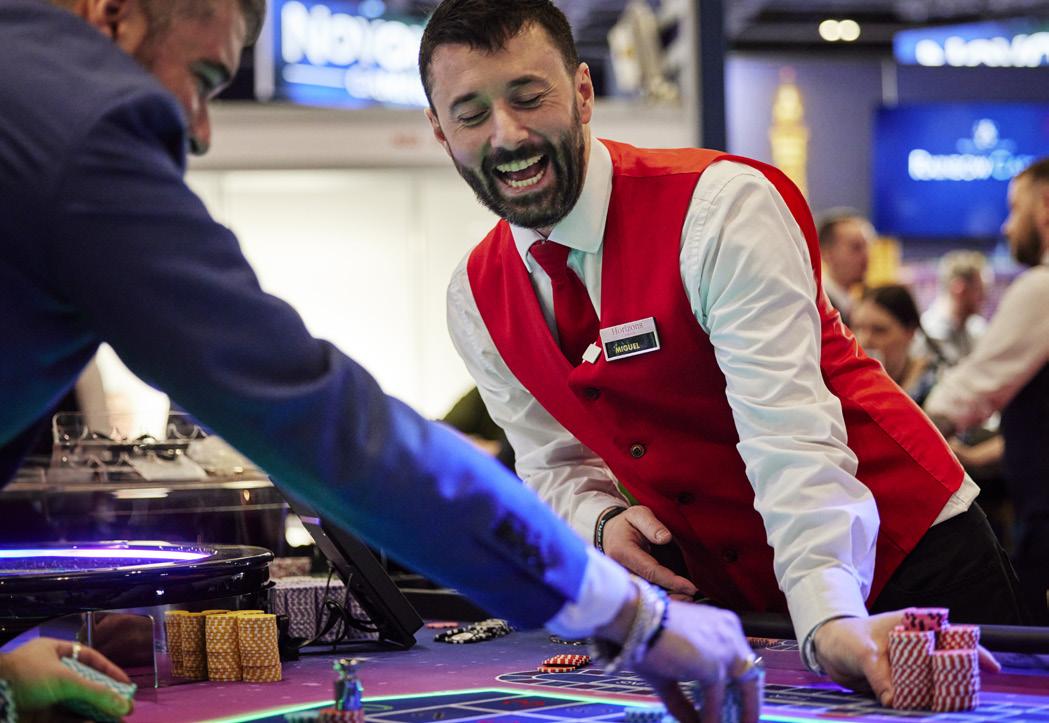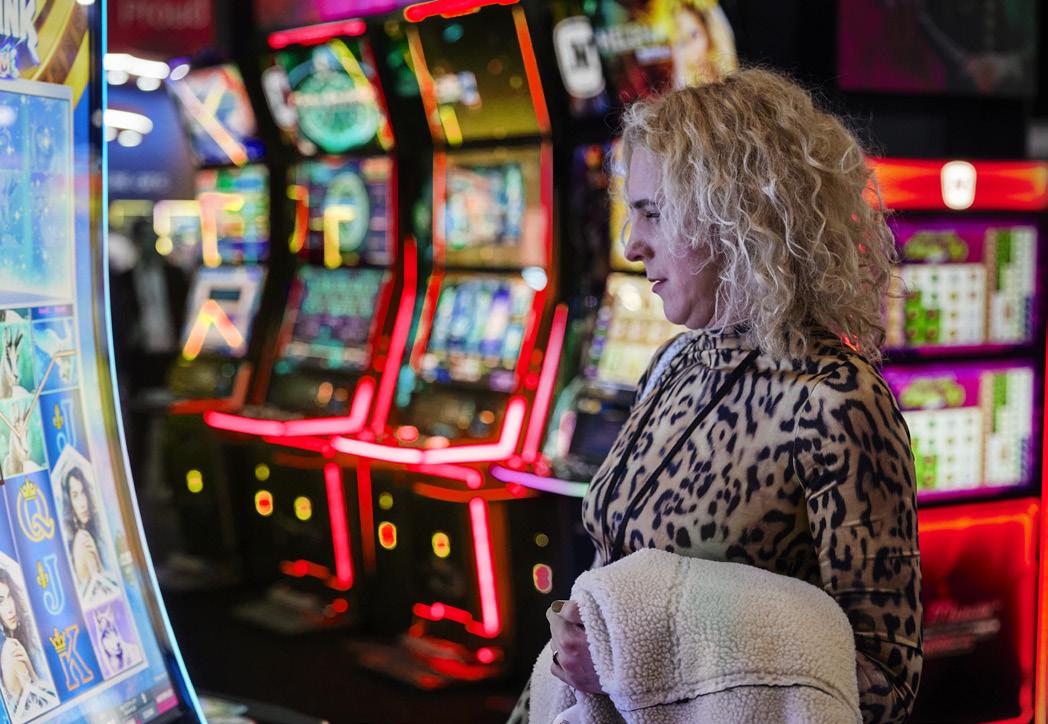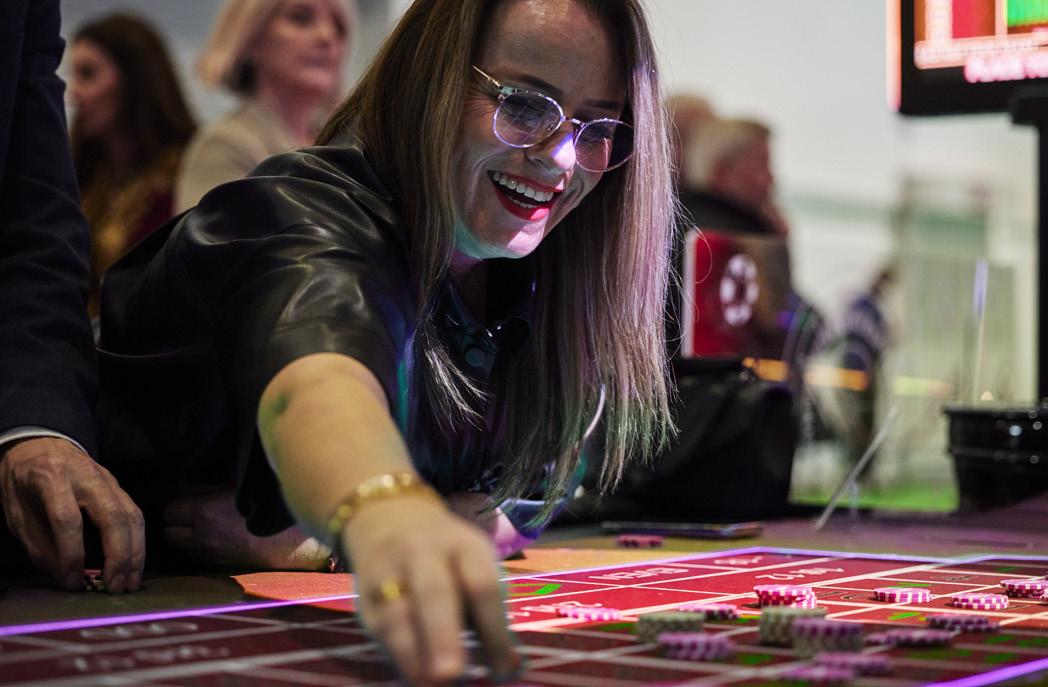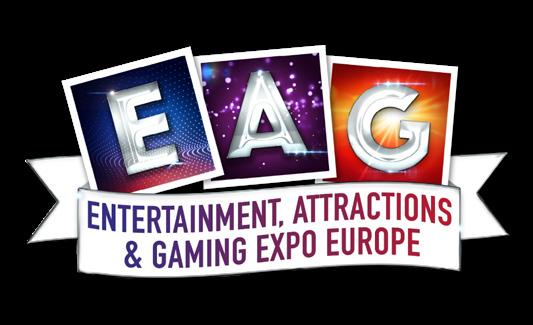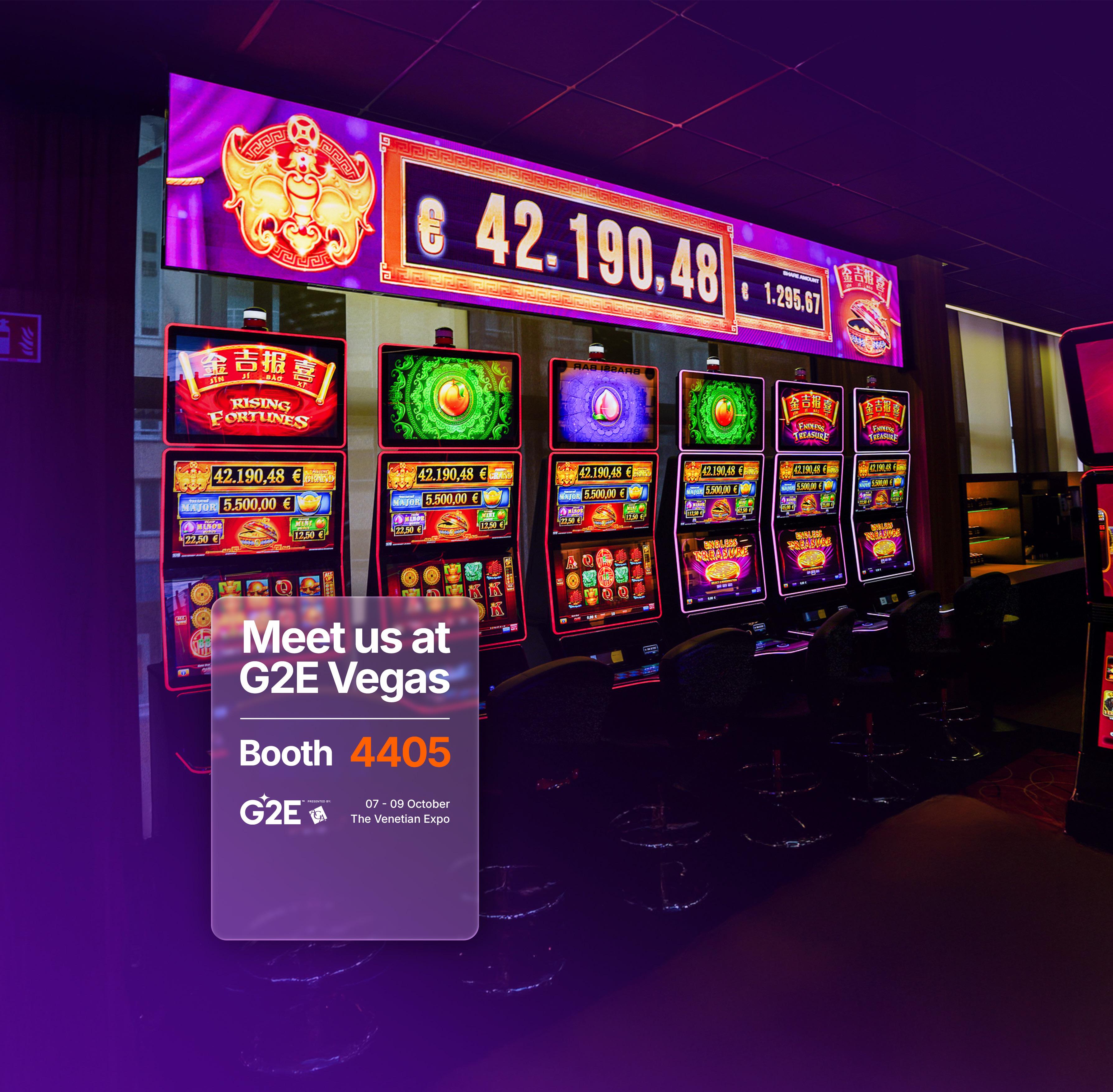


















Publisher: Peter White
Tel: +44 (0) 1892 740869
Mob: +44 (0) 7973 273714 peter@outsourcedigitalmedia.com
Editorial:
Editor in Chief : David McKee dmckee@huntingtonpress.com
Editor EMEA: Damien Connelly damien@outsourcedigitalmedia.com
Online iGaming Editor: Mark McGuinness markmcguinness847@gmail.com
Columnist: Raymond Chan ymrchan@hotmail.com
Victor H. Royer
International Features Editor victor@outsourcedigitalmedia.com
Associate Editor EMEA: Andrew Behan a.behan@librasgroup.com
Las Vegas Correspondent: Ryan Slattery RyanSlats@gmail.com
International Correspondent: Lyudmyla Kyrychenko lyudmyla.kyrychenko@outsource digitalmedia.com
Production:
Designer: Stewart Hyde stewart@de5ign.co.uk www.de5ign.co.uk
Accounts: Helen Holmes accounts@outsourcedigitalmedia.com
IT Director: Pasha Kuzminskiy pasha@outsourcedigitalmedia.com
By the time you read this, the dust will have settled in the downstate donnybrook for three New York City casino licenses. Depending on how the last three votes go, New York State’s official selection process may be a moot point.
Both New York Gov. Kathy Hochul and Mayor Eric Adams underestimated the clout of the state-created Community Advisory Committees. These local, sixmember boards have relentlessly narrowed the field, winnowing out all three Manhattan-bound casino proposals.

But is not just a tale about who didn’t get the brass ring. Our congratulations go to Genting Group and MGM Resorts International, both of whom were unanimously chosen to make the leap to Albany to plead their final case for Class III status. Both, not coincidentally, had the virtue of overwhelming community support (especially Genting), a sine qua non of casino selection in the Empire State.
This is definitely a teaching moment for our industry. It should not approach new constituents with an air of noblesse oblige, which some of the failed contenders arguably did. Casinos should mesh with and augment their communities, not present an air of greatness unbending.
One blunder that stands out is SL Green’s and Caesars Entertainment’s push to reduce the amount of pedestrian and bus access to their planned, Times Square casino – a project that was contingent on getting 75 percent of its customers via foot traffic or mass transit. Caesars sacrificed its casino on the altar of the single-passenger automobile, a virtual anachronism in modernday Manhattan.
It was make-or-break for MGM and Genting. Had either one been turned down by its CAC, it would have spelled eventual doom. They’re mammoth casinos armed only with video lottery terminals, and would have been hardput to compete with newer projects offering Class III slot machines and table games. Fortunately for both, New York power brokers had gotten used to them and liked what they saw.
They’re not fully out of the woods. Both companies, coincidentally, got caught with their hand in the money-laundering cookie jar back in Nevada. New York authorities have darkly hinted that will be taken into consideration. MGM has been contrite, Genting much less so. Humble pie will surely have to be eaten by both on their way to final coronation.
That leaves one license up for grabs, as expected. The Coney appears doomed, four of its six CAC members having gone public with their disapproval. Politicians are lining up behind Hard Rock International’s $11 billion Metropolitan Park and Bally’s New York has gone from extreme long shot to potential finalist.
Some big names have fallen by the wayside and an underdog or two has survived. As we’ve said before, it’s a most entertaining spectacle … and a great learning experience for the industry.
David McKee Editor

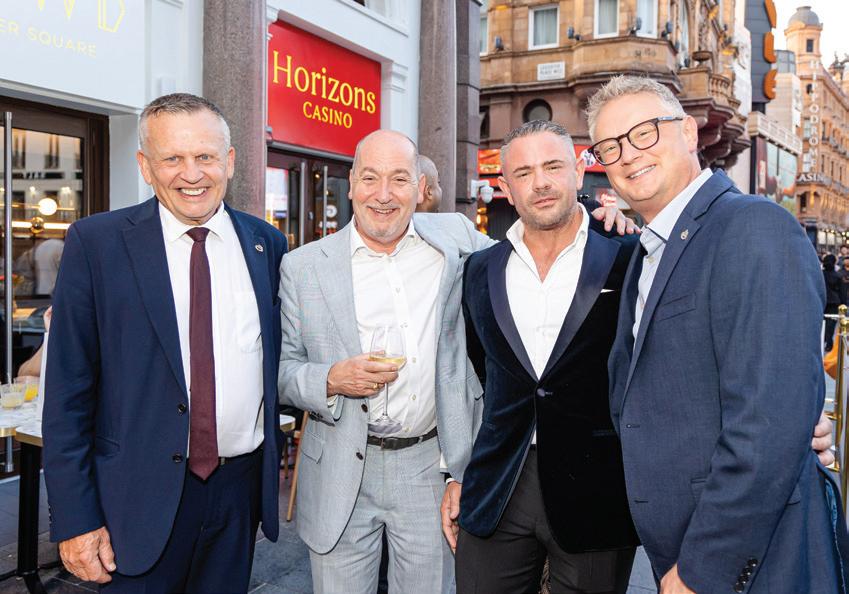



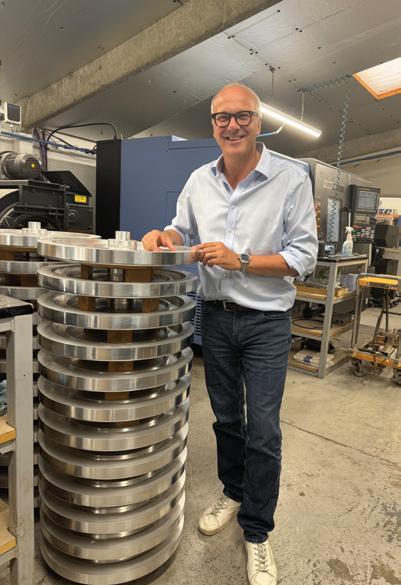

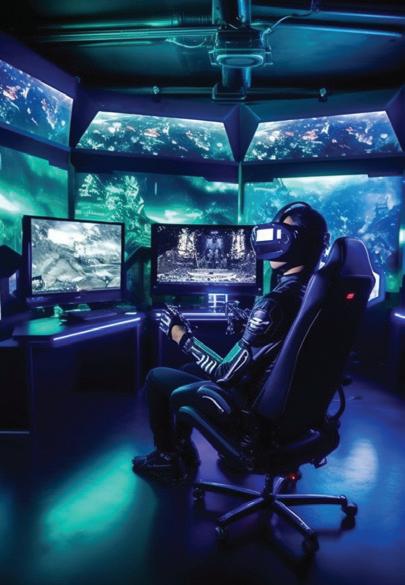
Editorial Policy: The views and opinions expressed in Casino Life remain principally the views of contributors and do not necessarily reflect those of the editor or publishers.
The publishers wish to avoid inaccuracies and, whilst every precaution has been taken to ensure that information contained in this publication is accurate, no liability is accepted by the editor or publishers for errors or omissions, however caused.
Unless otherwise stated, articles appearing in this publication remain the copyright of the publishers and may not be reproduced in any form without the publisher’s written consent.
Words:
hen the UK government’s Gambling White Paper was published in 2023, most of the attention went to online reforms and affordability checks. But one measure stood out to me as a genuine opportunity for the land-based sector: the decision to allow sports betting in UK casinos.
WThat became reality on July 22, 2025, when new regulations came into force, permitting casinos to offer betting both over the counter and – with the right licence, via self-service terminals. For the first time, casinos can participate in a market long dominated by high-street bookmakers.
Last week, I stood with Simon Thomas inside the Hippodrome’s refurbished Lola’s, now Paddy’s Sportsbook a partnership with the Betting Giant Paddy Power and is the latest step in the venue’s journey of innovation.
The Hippodrome has been evolving for over 13 years through major partnerships, each reinforcing its position as a central part of London’s night-time economy. This is not a revolution, but a natural evolution, and sports betting is simply the newest expression of that.
Casinos have always fought the perception of being niche gambling halls. Sports betting helps shift that narrative further. Suddenly, they can position themselves as true entertainment destinations, places where guests meet friends, order food, share drinks, watch live sport on giant screens and, yes, place a bet. It’s experiential rather than transactional.
The high street will remain the quickest place for a flutter but casinos can offer something premium, social and memorable. Imagine the Super Bowl at 1 a.m., not from the sofa but in a buzzing casino lounge, drinks flowing, food served and a crowd sharing the occasion. That’s a level of atmosphere no bookmaker can match.
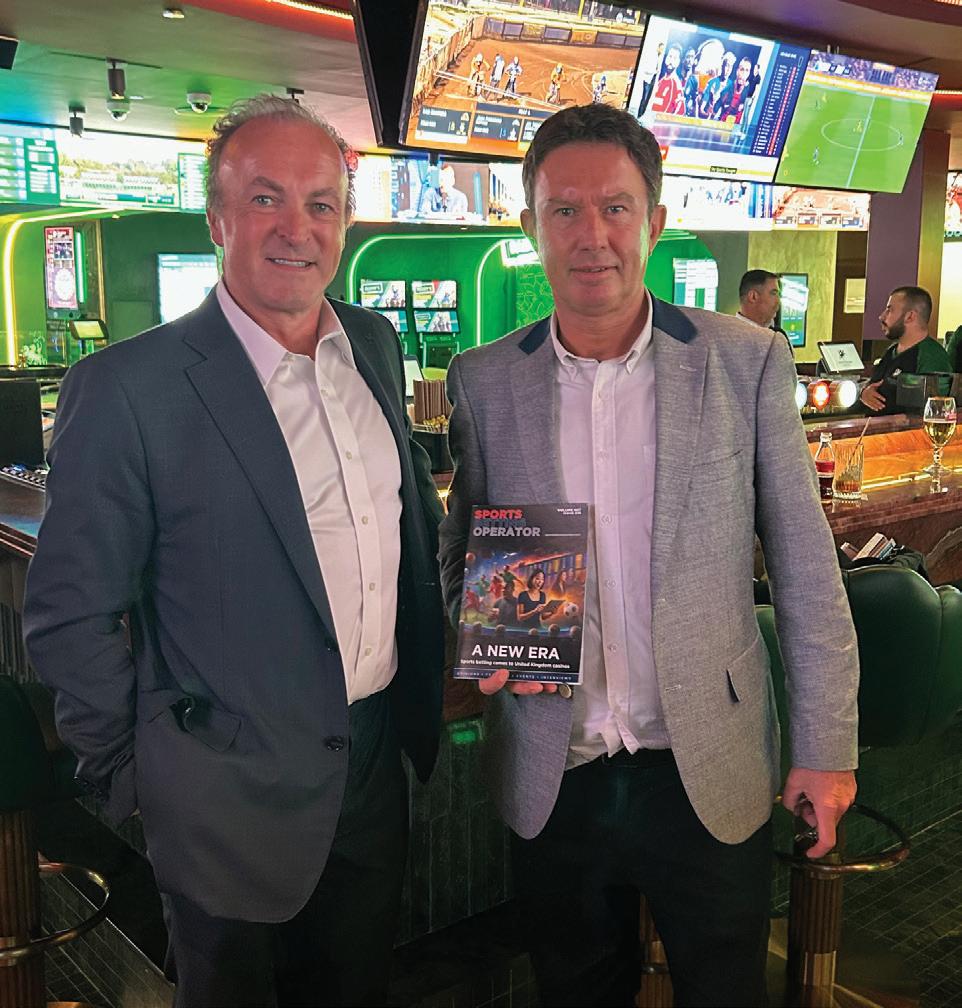
Operators in Spain and Austria already show how successful this model can be: stylish lounges, longer visits, stronger F&B sales and reputations that stretch beyond gambling. Crucially, UK casinos bring the advantage of supervision and compliance teams in place. They are uniquely positioned to deliver this responsibly.
The facts are simple: Sports betting is now legal in UK casinos. The real story lies in how operators choose to embrace it. Those who invest in purposebuilt lounges and harness their unique 24-hour advantage can turn a regulatory change into a competitive strength. Done well, sports betting will not just add revenue; it will create communities, extend dwell time, and further cement venues like the Hippodrome as integral to the fabric of the UK’s leisure and night-time economy.
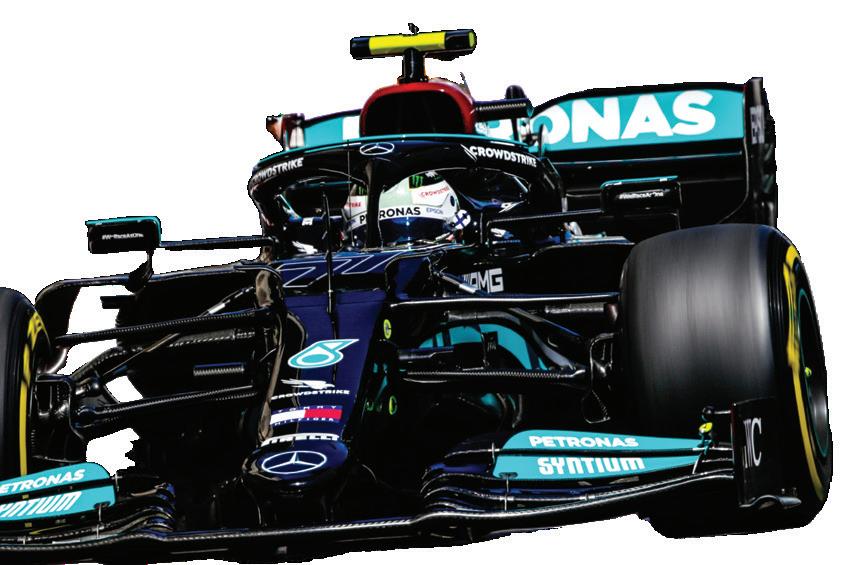

Global Gaming Expo is a quarter-century young. By Bill Miller, CEO & President, American Gaming Association
his year marks the 25th anniversary of Global Gaming Expo – the forum where the gaming community gathers to learn, collaborate and shape the future of our industry.
Over the past quarter-century, legal gaming in the United States has grown into a booming entertainment and economic engine, generating billions in tax revenue, and supporting 1.8 million jobs. The everevolving commercial and tribal gaming space, the rapid rise of sports betting, and the pace of innovation have fueled continued consumer engagement and industry momentum. G2E has been the epicenter of it all, serving as the platform to align priorities, confront challenges and set the tone for what comes next.
That forward focus is what defines G2E 2025. While we’ll take time to recognize the milestones of the past 25 years, this year’s program is built to look ahead. More than 25,000 attendees from 115 countries will engage in 100-plus education sessions and explore an expo floor featuring over 400 exhibitors showcasing the latest innovations. New spaces – including the Media Zone for storytelling, the Meeting Zone for business conversations, the iGaming Zone for cuttingedge innovation and the Networking Lounge as a central hub – will create even more opportunities to connect this year.
We’re also proud to launch the inaugural G2E Dealer Championship. Here, the nation’s best dealers will demonstrate their skills, technical expertise, and customer service that bring gaming to life every day.
Equally important is what will be discussed. Keynote sessions will explore emerging technologies, consumer engagement and the many growth opportunities ahead. Central to these conversations is protecting the integrity of the legal, state-regulated market. This requires strong compliance and

enforcement, deep partnerships with regulators and leagues, and an unwavering commitment to responsible gaming.
Achieving these goals requires a unified effort. That’s why G2E convenes regulators, operators, suppliers, and policymakers to collaborate on solutions that strengthen the regulated industry and preserve the trust we’ve built for decades now.
As we celebrate 25 years, we also reaffirm our commitment to driving innovation, safeguarding integrity and ensuring a strong, sustainable future for legal gaming. The American Gaming Association, alongside our partners at RX, looks forward to welcoming you to Las Vegas.


How ‘growing the power of play’ is driving the concept of the ‘fun economy.’
By Stuart Hunter, managing director, Clarion Gaming
have attended every Global Gaming Expo since I moved across from Clarion Events to head-up Clarion’s gaming division. I have always enjoyed the experience of being in Vegas, both on a professional and a personal level.
IICE Barcelona and G2E operate in the same space. As a consequence it may surprise some Casino Life readers to learn that I always look forward to experiencing a successful edition of the show in Las Vegas.
From a business perspective, a good G2E is a symptom of a healthy and confident industry. This, in all likelihood, will be replicated three months later at ICE and iGB Affiliate in Barcelona.
However, it goes beyond simply having a strong show. Both ICE and G2E both serve the legal and regulated markets.
Championing and providing a showcase for our industry has never been more important. The specter of illegal and unlicensed operators provides a threat on so many levels.
Not only does the unlicensed sector take income out of the regulated market, undermining profitability and the ability to invest in R&D – which represents the lifeblood of the business. It also feeds a toxic narrative which views gambling as being inherently wrong.
Showcasing the many responsible, land-based, industry players is a crucial role that G2E fulfills admirably. Las Vegas has a fascinating history of transformation from a frontier outpost to becoming widely recognized for being the world’s entertainment capital.
Throughout the world we can find examples of how responsible gaming has been the catalyst for the development of a portfolio of complementary leisure opportunities, including restaurants, culture, theatre, retail and elite sports events. Events such as G2E and ICE Barcelona provide an opportunity to showcase the transformative impact of gaming.

Our creative effort in support of the 2026 edition of ICE Barcelona is ‘Growing the Power of Play.’ This theme reflects the influence that technology has, not only in driving gaming innovation, but also in providing the foundation stones that are necessary to build a vibrant economy.
Whether at G2E in October or the January edition of ICE Barcelona, visitors will encounter world-leading exhibitors who set the benchmark for responsibility within the growing ‘fun economy.’ At ICE, the spotlight expands even further, to encompass a truly global showcase of the latest gambling entertainment technology solutions across every vertical.
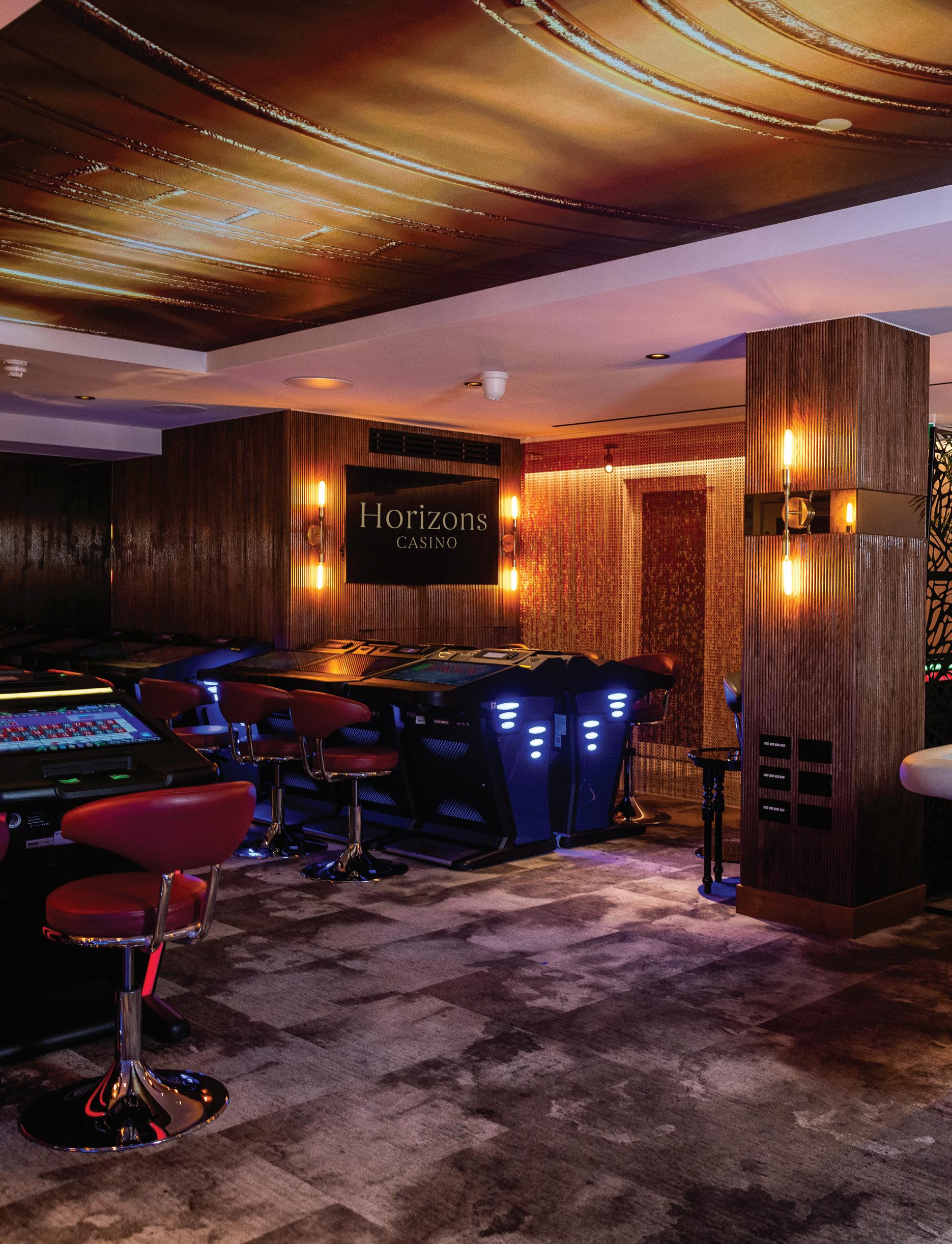
Being in Leicester Square is both a privilege and a responsibility. The Square is internationally recognized as a symbol of entertainment, glamour and energy, and our design choices needed to reflect that while also complementing the conservation area around us."
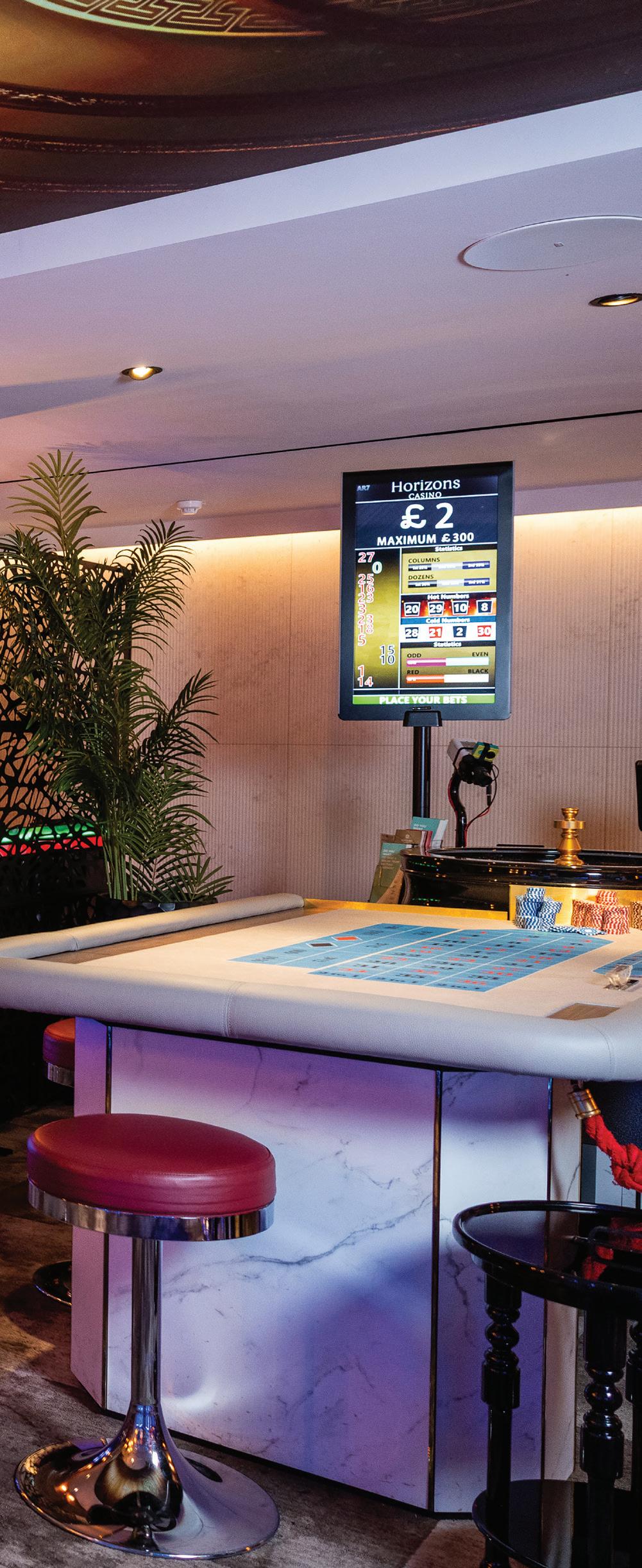
Horizons Casino has been a fixture of Leicester Square’s nightlife for nearly four decades, evolving from its beginnings as Napoleons Casino in 1987 to today’s premium gaming and entertainment destination.
Following a bold refurbishment, Director of Gaming Ryan Livingstone reflects on how the venue is striking a balance between heritage and modernity, intimacy and spectacle, ensuring Horizons remains at the heart of London’s entertainment scene.
Before we explore the recent refurbishment, could you share a brief history of Horizons Casino and its significance within Leicester Square’s entertainment scene?
Horizons Casino has been part of Leicester Square’s story for almost four decades. Originally opening its doors in 1987, it was the very first and – for many years – the only casino in and around the Square. That pioneering presence gave it a unique role – a discreet yet refined gaming experience right in the heart of London’s entertainment district.
Initially operating as Napoleons Casino under A&S Leisure, it became a trusted destination for those seeking not only gaming but also a sense of community in the West End. Its boutique scale and reputation for personal service earned it a loyal following that valued both its intimacy and its prime location.
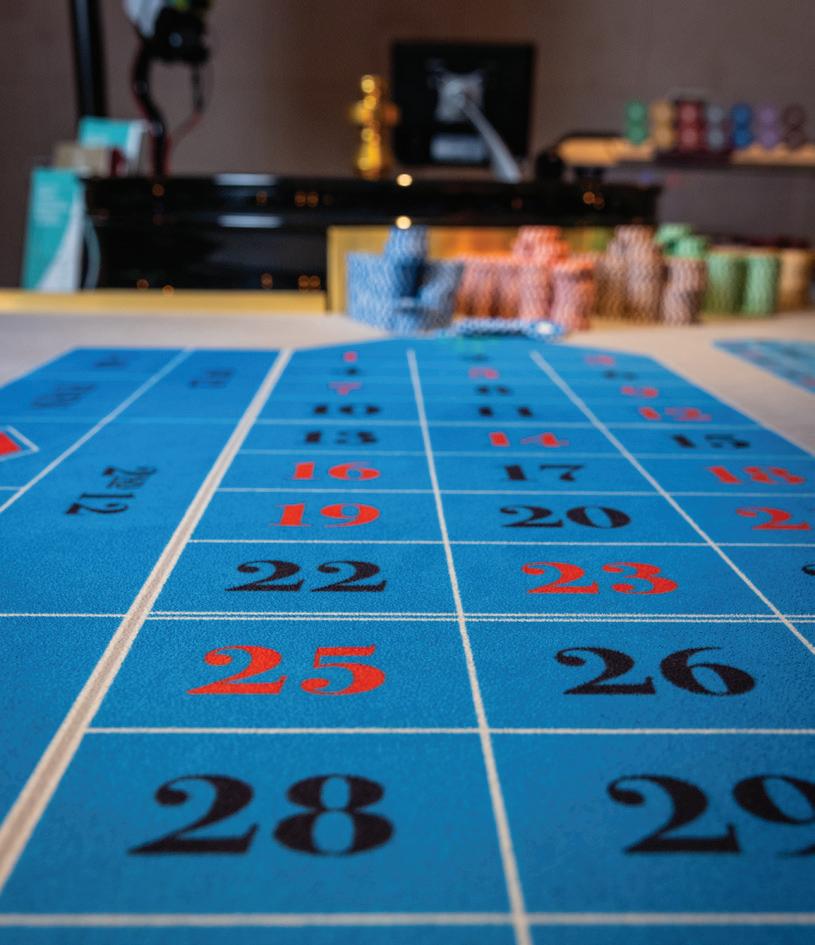
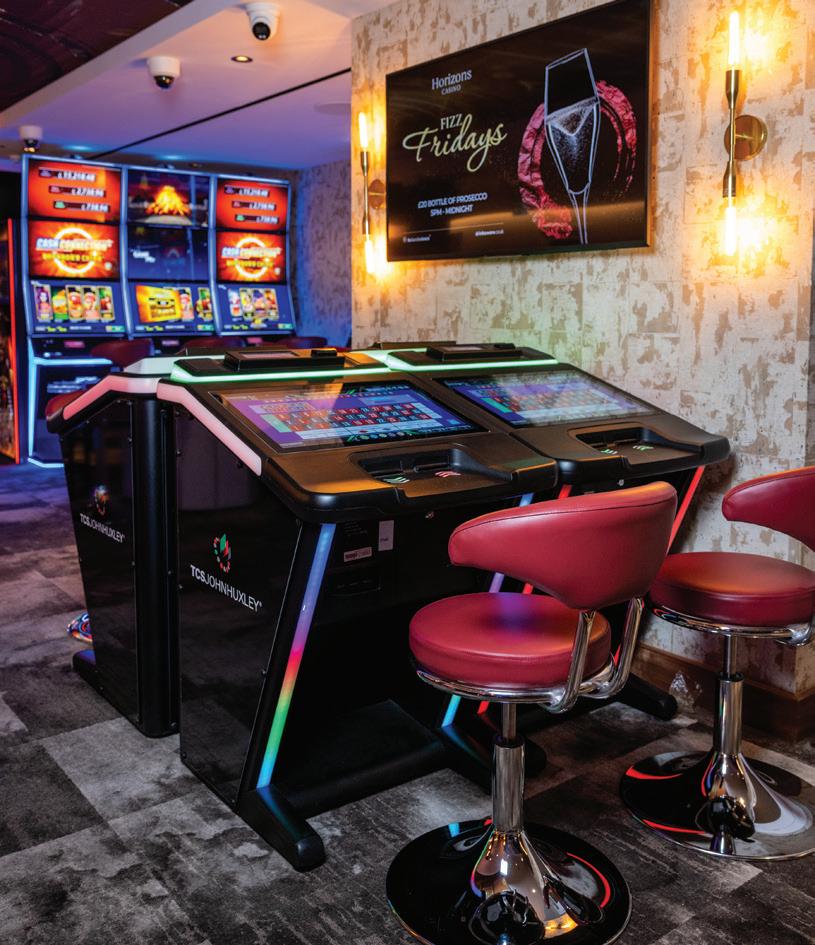
In 2018, the casino entered a new chapter when Mayfair Casinos acquired it and rebranded the venue as Horizons Casino. That rebrand signaled more than just a change of name. It marked a new ambition to elevate the guest experience while building on the strong heritage of the site. Since then, Horizons has been positioned as a central part of Leicester Square’s nightlife ecosystem: a sophisticated yet welcoming environment where gaming, hospitality and entertainment seamlessly converge.
Over the years, the casino has grown to become more than just a place to play. It has become a social hub for regulars, visitors, and high-value clientele who want the buzz of Leicester Square combined with a sense of exclusivity and refinement. Under the leadership of a dedicated management team, including long-standing figures such as Jeremy Cummins the Casino Director, the recent refurbishment is the culmination of that journey — a bold evolution designed to ensure Horizons not only honors its past but also defines the next chapter of premium leisure in Leicester Square.
When did the concept for this major renovation and expansion first emerge? What vision guided its development?
The concept for the refurbishment and expansion first began to take shape in the years immediately following Mayfair Casinos’ acquisition of the venue in 2018. While Horizons had always enjoyed a loyal following, it became increasingly clear that, to fully unlock its potential, we needed to think beyond a cosmetic upgrade. The ambition was not simply to refresh the décor but to reimagine what Horizons could represent within Leicester Square — a destination where gaming, dining and social experience are integrated seamlessly.
The vision was guided by three principles: to respect the heritage of the casino, to modernize and expand the facilities in line with evolving guest expectations as an intimate setting, and to set a new benchmark for premium leisure in the West End. That vision was shaped and refined collaboratively by our senior team, to ensure the concept remained both ambitious and achievable.
In essence, the project was about more than refurbishment. It was about repositioning Horizons to ensure that it continues to thrive at the heart of London’s entertainment scene for decades to come.
What were the primary design objectives for the project? How did you strike the balance between modernizing the space and retaining its distinctive character?
Our design objectives were centered around three things: flow, flexibility and feel. We wanted the space to flow naturally between gaming, dining and social areas, encouraging guests to move effortlessly from one experience to another. Flexibility was equally
important, ensuring each space could accommodate intimate VIP gatherings, lively social occasions or highstakes gaming with equal ease. The overall feel needed to be premium, contemporary and welcoming, without losing the intimate character that long-time patrons valued.
To strike the balance, we worked closely with designers who understood the importance of respecting Horizons’ heritage. While the finishes, lighting, and furnishings are undeniably modern, “The expansion preserves the venue’s sense of intimacy." A good example of this is the ceiling-mounted digital skylight on the gaming floor. It subtly mirrors the ambient conditions outside, creating a sense of openness and natural light within an enclosed environment, without overwhelming the venue’s discreet character.
It was about evolution, not erasure – retaining the personality that has always defined Horizons but presenting it through a more refined and contemporary lens.
Leicester Square is one of London’s most iconic locations. In what ways did its unique setting influence both the interior and exterior design choices?
Being in Leicester Square is both a privilege and a responsibility. The Square is internationally recognized as a symbol of entertainment, glamour and energy, and our design choices needed to reflect that while also complementing the conservation area around us. Externally, we took care to ensure the building respected its historic setting, while discreetly signaling the modern luxury that awaits inside. Internally, the setting inspired us to be bold – creating a venue that embraces the vibrancy of the West End but channels it through a refined, premium aesthetic. We wanted the atmosphere inside to feel like an extension of Leicester Square itself: dynamic, theatrical and alive, but always with a sense of elegance and control.
Could you outline the key stages of the refurbishment process, from initial preparation and reconfiguration through to the final fit-out?
The project unfolded in several key phases. The initial stage involved stripping back the existing layout to create a clean slate – removing structural and design limitations that had built up over decades. From there, we reconfigured the space to prioritize guest flow,
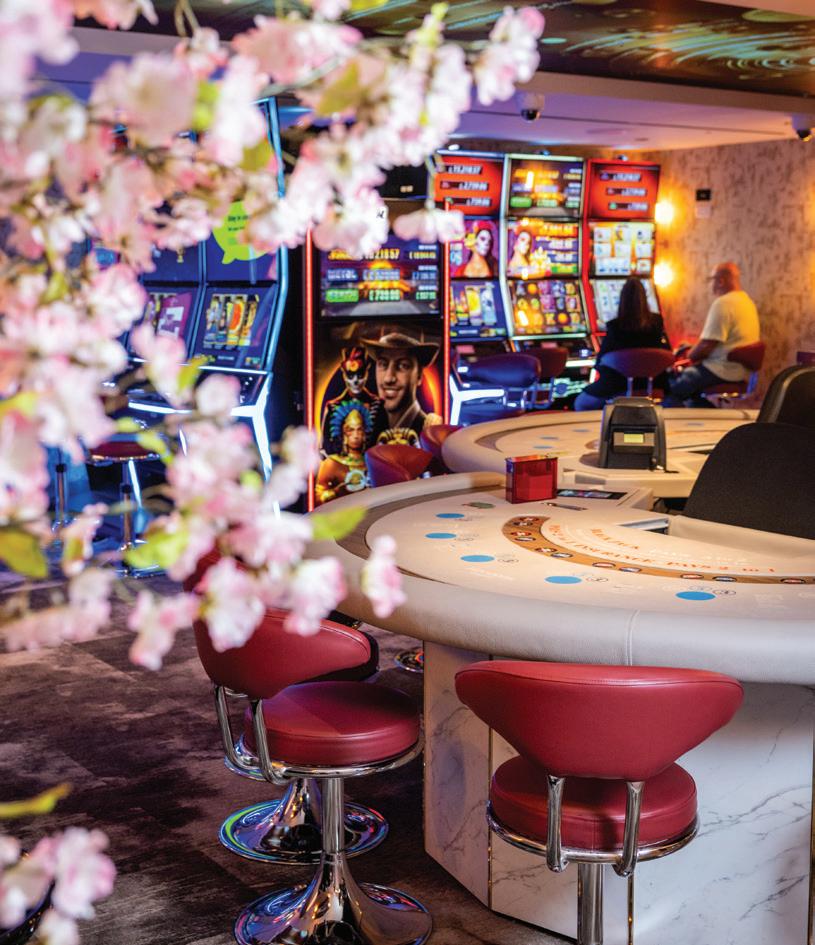
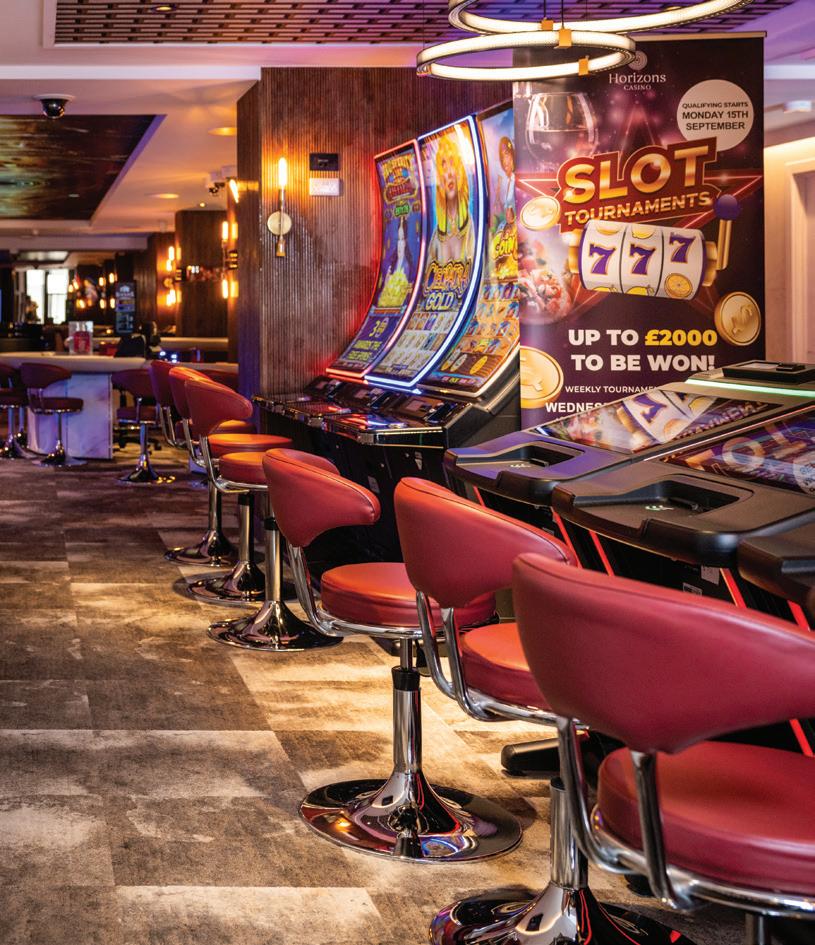
ensuring that each area connected logically to the next.
The next stage was the installation of core infrastructure: new mechanical systems, upgraded gaming technology, and the preparatory works needed to bring the restaurant and terrace to life. Once those essentials were in place, we moved into the fit-out stage, installing new gaming furniture, bespoke bar designs and carefully selected finishes.

Finally, the soft touches were layered in: lighting design, art and décor that brought the vision to life. Every stage was meticulous and, while the process was complex, it was incredibly rewarding to see each layer add up to a cohesive, world-class venue.
Operating in the heart of central London presents unique logistical challenges. What were the most significant obstacles encountered during the build?
Operating in Leicester Square meant every aspect of the build had to be carefully managed. The location is within a conservation area, so planning permissions and design approvals were subject to heightened scrutiny. At the same time, we were dealing with one of the busiest pedestrian areas in London, which made deliveries, contractor access and noise management particularly complex.
From an infrastructure perspective, the project required us to reassess how power was distributed across the building. A casino and a full-service restaurant, operating side by side on the ground floor place significant demands on energy supply. Ensuring those needs were met without compromise was a major coordination exercise.
Equally, integrating new HVAC systems into a historic building brought its own challenges. With the introduction of an open-fire kitchen, ensuring sufficient airflow while also keeping both the restaurant and gaming floor consistently cool and comfortable was essential. Balancing those technical requirements
with the sensitivities of the site was one of the most demanding aspects of the project, but also one of the most rewarding to see successfully resolved.
Did any unexpected developments or challenges arise during the project that altered its course?
As with any project of this scale, there were unforeseen challenges. One of the most significant was the discovery that the way power was distributed within the building was not sufficient for a casino and restaurant of this scale, operating together on the ground floor. Ensuring those needs were met required a fundamental reassessment and redistribution of power across our estate – a complex exercise, but one that was essential to delivering the service and reliability expected at Horizons.
Equally critical was the HVAC system. Creating an open-fire kitchen at the heart of the restaurant demanded significant airflow solutions, not only to meet safety and compliance standards but also to ensure that both the gaming floor and the dining spaces remained cool, comfortable, and welcoming at all times. Balancing these requirements within the constraints of a historic building was a major challenge, but one that proved essential to the success of the redevelopment.
Finally, aligning our signage ambitions with the strict requirements of the Leicester Square conservation area required creativity finding solutions that allowed us to maintain the impact of our brand without compromising regulatory expectations. Each of these developments forced us to adapt quickly, but in doing so we often arrived at solutions that were stronger than our original plans.
The introduction of new gaming furniture, machines and technology is a significant undertaking. What factors guided your selection and installation process?
Every decision was guided by two questions: Does this enhance the guest experience? Does this reflect Horizons’ brand promise? On the gaming side, we selected furniture that balances comfort with style, ensuring that players feel both relaxed and engaged. Machines and electronic options were chosen for their innovation and reliability, with a focus on offering variety without overwhelming the floor.
The same philosophy extended to Ember at Horizons. The kitchen was designed around flexibility
and pace, with the infrastructure to accommodate open-fire cooking and the ability to adapt quickly to new menu directions. Even details like the seating and flow of the restaurant were selected to echo the premiumbut-welcoming aesthetic of the gaming spaces, ensuring a sense of continuity across the venue.
Installation across both gaming and dining areas was handled with precision to ensure everything integrated seamlessly. It wasn’t about showcasing equipment for its own sake but about creating an atmosphere where technology and design support the overall guest journey.
How did you incorporate the latest gaming technologies while maintaining a seamless and engaging guest experience?
At Horizons, we believe technology is most powerful when it enhances the experience without drawing attention to itself. We incorporated the latest gaming systems, security measures, and cashless technologies in ways that streamline the guest journey while preserving the sense of theatre and excitement that defines live gaming.
For example, digital systems were installed to improve efficiency and player convenience, but always in a way that blends into the overall environment. A standout innovation is the large, ceiling-mounted display, designed to act as a digital skylight. It reflects the ambient conditions outside – shifting in tone and light throughout the day – and it subtly transforms the atmosphere of the gaming floor. Guests may not consciously think of it as “technology,” but it contributes enormously to the immersive and seamless environment we wanted to create.
The key was integration – ensuring that technology supports human interaction rather than replacing it. Horizons remains about people first, with technology serving as a quiet but effective enhancement to the overall experience.
The addition of the new fusion restaurant launching on the second of October, “Ember at Horizons” and of al fresco dining areas has expanded the venue’s appeal. How did you approach designing these spaces to complement the overall experience? Ember at Horizons was conceived as more than just a restaurant. It is designed to be a core part of the Horizons experience. Launching on October 2, Ember will deliver a global menu cooked largely over open
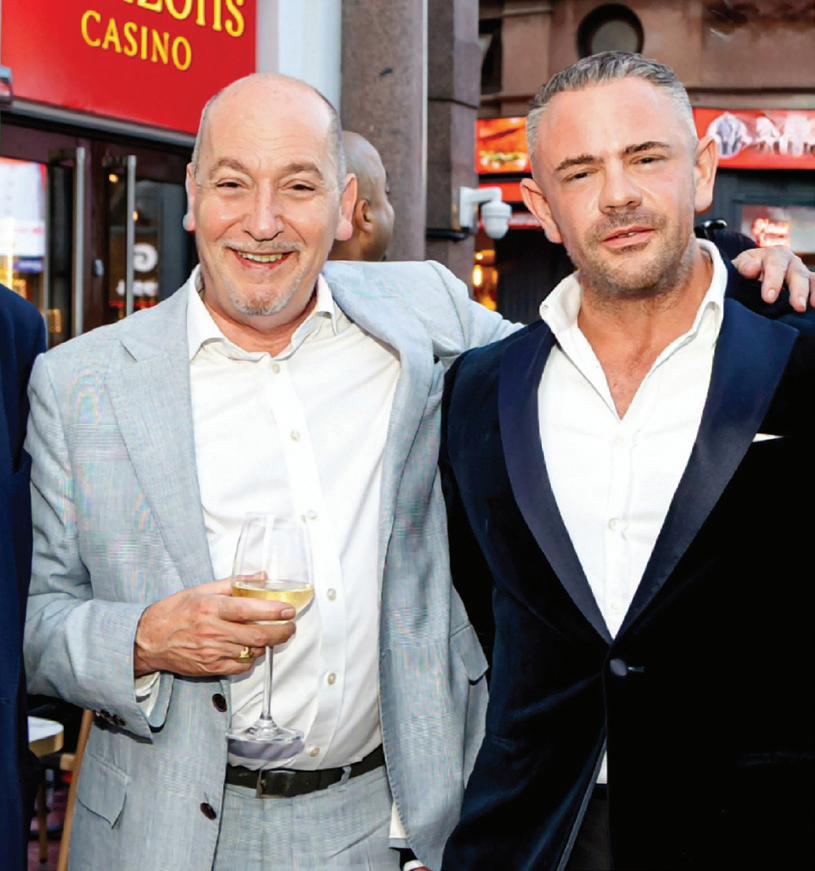
charcoal fires, bringing a sense of theatre and energy that complements the vibrancy of the gaming floor. The only addition we needed to make in the kitchen was a wok burner, as the space was purpose-built to handle flexibility. It has been designed with simplicity and adaptability in mind, allowing the team to move at pace and evolve the menu easily as tastes and seasons change.
Both the restaurant and the terrace were approached as natural extensions of the casino, rather than standalone offerings. Ember’s warm, elegant design reflects the same premium-yet-welcoming ethos as the rest of Horizons. The terrace, meanwhile, was envisioned as an oasis in the middle of Leicester Square – somewhere vibrant and connected to the buzz of the area, yet private enough for guests to feel comfortable and relaxed. By weaving Ember and the al fresco experience into the wider design narrative, Horizons now offers a holistic journey where every element – gaming, dining, and socializing – complements the other.
In your view, what role does the enhanced F&B offering play in enhancing the overall customer journey at Horizons Casino?
Food and beverage have become central to the Horizons experience, and the launch of Ember at Horizons represents a step change in how we deliver that. The kitchen has been designed to adapt quickly, allowing the menu to evolve with pace and creativity, ensuring there is always something new and exciting to discover.


By pairing Ember with our al fresco terrace and cocktail bar, we’ve created a complete hospitality journey. Guests can begin their evening with drinks on the terrace, enjoy the drama of open-fire dining and then flow naturally into the gaming spaces. This integration doesn’t just enhance the customer journey — it extends it, creating more reasons for guests to stay longer, engage more deeply and return more often.
Were there any individuals or departments whose contributions proved particularly instrumental in overcoming challenges?
Absolutely. Our design and construction partners played a pivotal role in navigating the complexities of the build, particularly around conservation and infrastructure. Internally, our gaming and hospitality teams were instrumental in stress-testing concepts, and ensuring the final product worked operationally as well as aesthetically. I would also highlight the contribution of our compliance and security teams, who worked tirelessly to ensure that every aspect of the refurbishment aligned with regulatory requirements without compromising guest experience.
Equally important was the support from head office and stakeholder engagement throughout the project. Our chief executive was personally involved on a daily basis, ensuring alignment across the business and keeping momentum high. At venue level, our director, Jeremy Cummins – both venue director and a board director – was central to bringing the project to life. His dual perspective, combining strategic oversight with hands-on operational leadership, ensured the redevelopment stayed true to our vision while also working flawlessly in practice. It was truly a collective effort and the finished venue is a testament to that collaboration.
Looking to the future, are there further innovations or developments planned for Horizons Casino?
Yes, Horizons is always evolving. While the refurbishment represents a major milestone, we see it as the foundation for further innovation. We are exploring enhanced digital integration, more bespoke VIP experiences and a calendar of curated events that leverage our new spaces.
Our philosophy is never to stand still. Horizons will continue to adapt to shifts in guest expectations and industry trends, ensuring it remains at the forefront of premium leisure in the West End.
It could be said that with all the investment in the leisure entertainment and casinos that the West End is the fun destination of London.
I would agree wholeheartedly. The West End has always been the beating heart of London’s entertainment scene and recent investment across leisure, dining, and gaming has only amplified that status. Horizons is proud to be part of that movement,
offering an experience that complements the theaters, restaurants and nightlife that make the West End such a global destination.
The fun of the West End lies in its diversity. There truly is something for everyone. Horizons adds to that mix by providing a premium, discreet, and contemporary gaming-and-hospitality destination right in the center of it all.
On a personal note, what has been the most fulfilling aspect of leading such a transformative project?
For me, the most fulfilling aspect has been seeing a vision become reality. Projects of this scale are never straightforward. They demand long hours, tough decisions and an enormous amount of teamwork. To see our guests walk through the doors, and respond with genuine excitement and appreciation has been incredibly rewarding.
On a more personal level, working alongside Jeremy, who I have worked with in the club for 21 years – and side by side for over a decade –has been particularly meaningful. He is not only a colleague but also a close friend, and sharing this journey with him made the project not only a professional success but also a deeply personal one.
It’s also fulfilling to know that we have created something lasting – a venue that honors its heritage while setting the stage for the future. Leading that transformation alongside a trusted colleague and friend has been both a privilege and a careerdefining experience.
Since reopening, how have guests responded to the refreshed design and enhanced facilities? The response has been overwhelmingly positive. Guests have embraced the new layout, the upgraded gaming facilities, and the addition of the restaurant and terrace. Many longstanding patrons have commented that, while the venue feels entirely new, it still retains the intimacy and warmth they associate with Horizons.
One of the most talked-about features has been the ceiling-mounted, digital skylight on the gaming floor. Guests are often surprised by how naturally it transforms the space, mirroring the ambient light and conditions outside to create a sense of openness in what was once a closed environment.
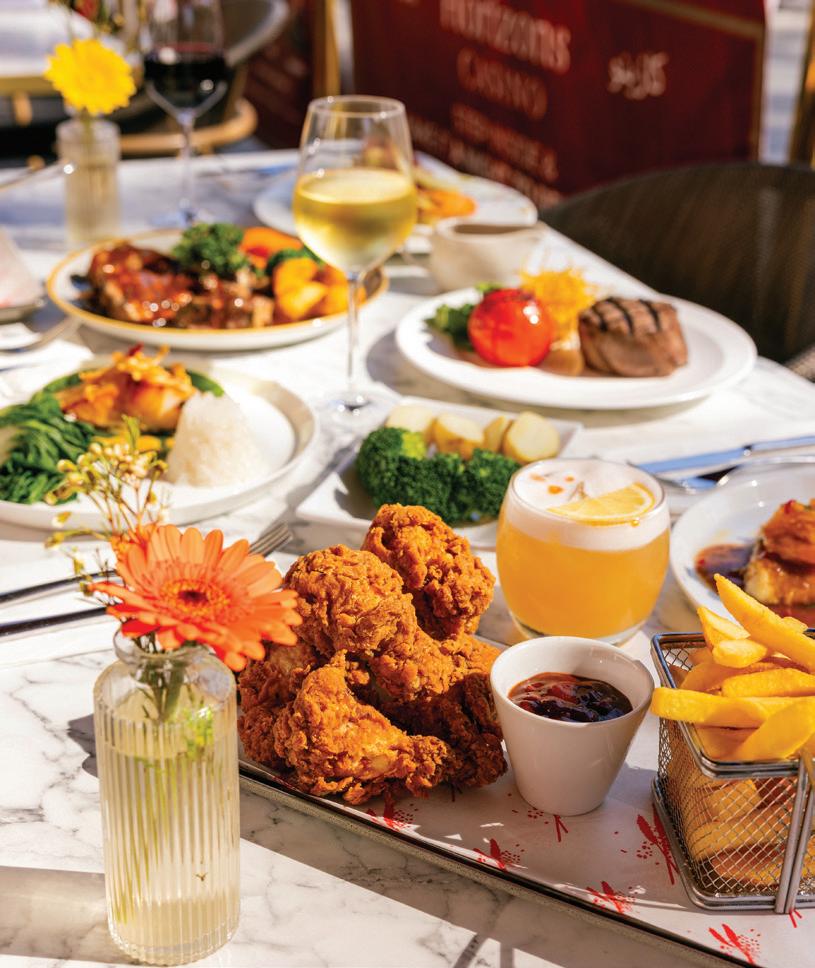
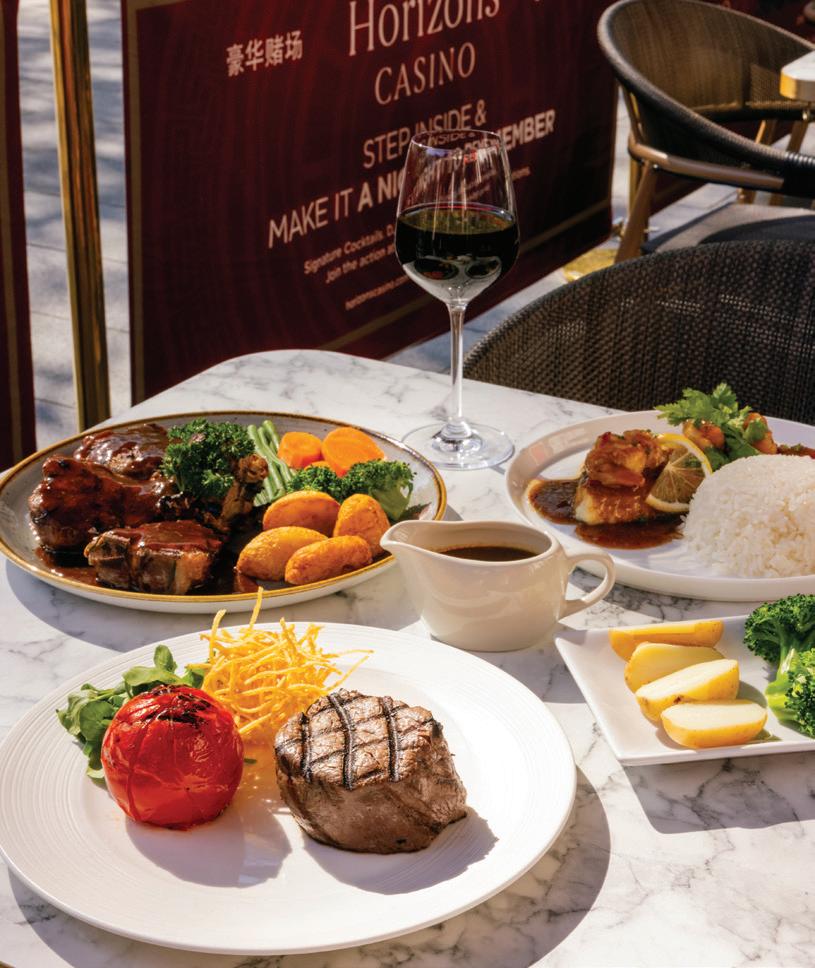
It’s a subtle innovation but one that has had a big impact on how people experience the venue.
New guests have been equally enthusiastic, particularly about the ability to enjoy a complete night out in one destination. The combination of gaming, dining and social spaces has resonated strongly, reinforcing our belief that the refurbishment delivers exactly what the market was waiting for. It sets a strong foundation for the future of Horizons.

hirty-three years is a good, long run for any casino and in the case of the original Hollywood Joliet, it was time for a change. Its 1992 riverboat remained a solid performer for Penn Entertainment, but it had the aura of being cramped and antiquated. Ergo, Penn opted to move ashore in Illinois, going from the ground up with new, $185 Hollywood Casino Joliet. It’s part of a nationwide capex push by Penn to improve and expand five of its properties.
TTo head up the reborn Hollywood Joliet, Penn tapped veteran executive Ruben Warren. Nearing a decade with Penn now, Warren cut his teeth in Las Vegas with Cannery Casino Resorts, then moved on to Full House Resorts. That means he’s learned from some of the best in the business, lessons he’s vigorously applying to Joliet. Our conversation has been edited for length.
How long have you been with Penn Entertainment?
I’m coming up on nine years. It’s been a nice run with Penn.
Most of your previous positions have been on the finance side. Is it a big shift to be in operations now?
Yes, a big adjustment. It took many years of training and getting opportunities with my mentors to be able to tackle this job. It’s better than what I ever anticipated. Most of my career has been in finance and I love the finance side, but I’m having a ball.
What did your time with Full House Resorts teach you?
I was in a finance role there and I was in the mode of saving properties. It was just a great challenge to be a part of that team and figure out that organization. In every organization, every penny counts and we counted a lot of pennies there.
How do you look back on your stint at the Cannery?
I grew in the market. Bill Wortman and Bill Paulos made great leaders. They provided me the opportunity for some real hard feedback, which I still reflect on today – very valuable lessons learned. I was an
assistant general manager for them for about four years. I had a lot of great mentors on the table game and operations side of the business that really gave me the foundation to lean on them today in the role that I’m doing now.
Which posts have you held at Penn?
I started out with Penn in Massachusetts. Plainridge Park was a brand-new property, just under one year open. I had a great time there. I transferred over to Ameristar East Chicago, back in the Indiana market for about a year. Then I went all the way to the West Coast, to Colorado, to Ameristar Black Hawk. I had a fabulous time in a great market. I was there for about a year.
Then got my opportunity as a general manager in the Pennsylvania market. I went to York, to a casino they had there. We opened two facilities while I was there: Hollywood Casino York and Hollywood Casino Morgantown. On the operations side as GM, it was an opportunity to open up a property and help open a second property.
Ultimately, I found my way here to Joliet in the past year, to help this team open up Joliet – which we accomplished on August 11. Next year, we’re going to be opening up Hollywood Casino Aurora. I cannot wait for the market to see that. It’s going to be around the first half of 2026.
How badly was the existing casino in Joliet in need of replacement?
It was a 33-year-old property, an aging riverboat. It definitely needed relocation. There’s two new competitors on I-80. So these new casinos are going into more-strategic, accessible locations. The original property, which was sitting on Route Six, was one of the first properties in Illinois to open and it took you half a mile from Route Six to get to the property. Our new location, sitting off of I-55 and I-80, is very accessible It’s visible from the highway. It’s night and day from the original riverboat. Of course we love the City of Joliet. We wanted to stay here in the city and it delivered on the infrastructure, and we were happy to reinvest here in Illinois.
What can you do in a land-based casino that you couldn’t on a riverboat?
Here, the way this property is built, it’s very efficient. It’s a very family friendly environment, a community-

friendly casino. The majority of our restaurants are not on the gaming floor. We’ve partnered with celebrity chefs, like Giada de Laurentiis for Sorellina. Fabulous reviews so far. We have Shawn McClain, a James Beard award-winner. We have Rick Ortiz, with Antique Taco, a Chicago staple. We have Stephanie Izard, who’s opened Lucky Goat, a burger concept.
And of course there’s our 10,000-square-foot event center. We’ve got Bret Michaels coming here as a sold-out show in October. Then we have Patti LaBelle coming in November. So we have, out of the gate, two very fabulous entertainers. You do not have to go to Chicago to go to a great show; you can come here to Joliet.
The major difference between this place and the riverboat is the efficiency of this property. The gaming floor is situated so, when you land on the gaming floor, you have visuals that will guide around the property, whether it is in our high-limit spaces, in the back of
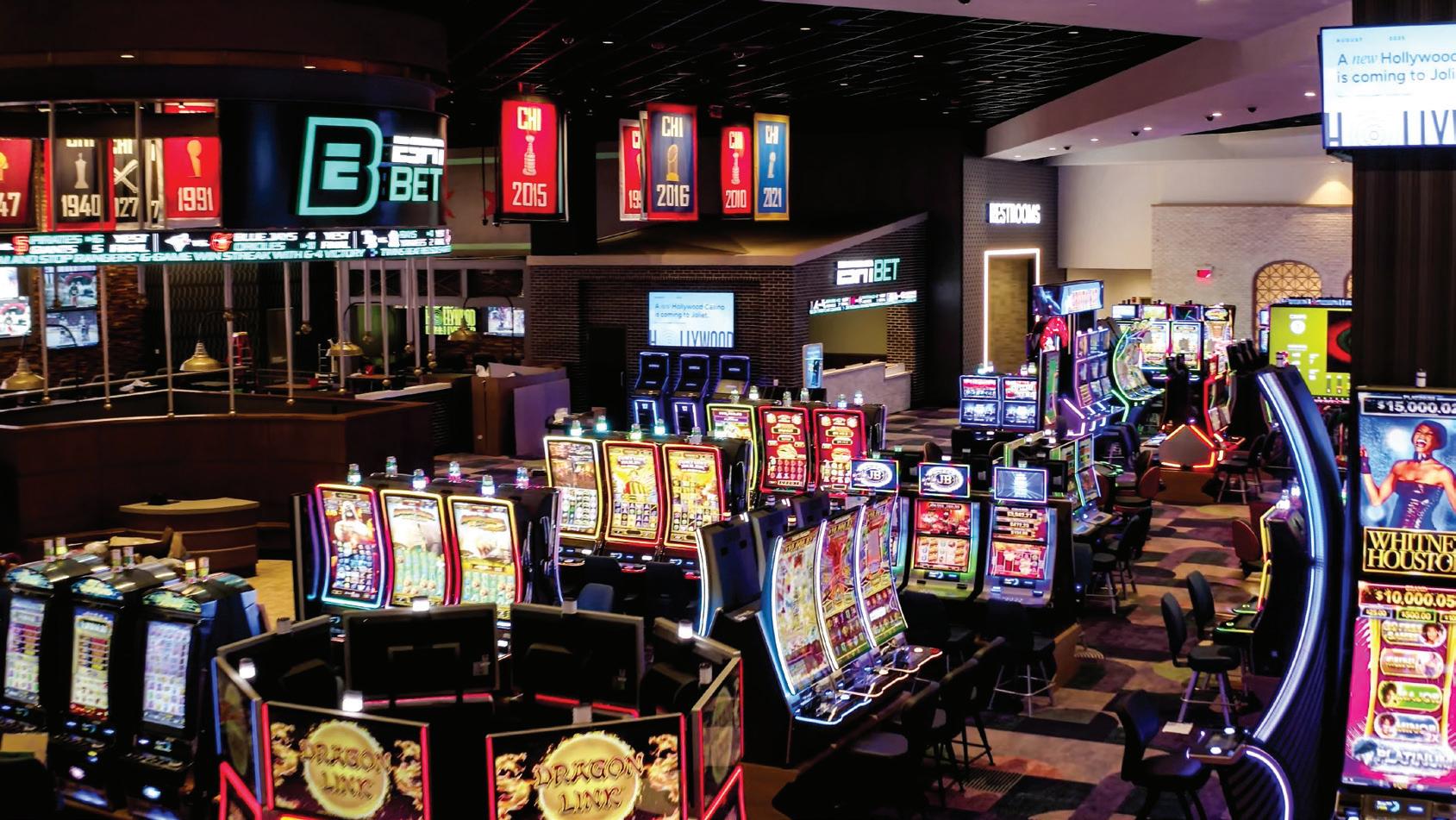
our casino. The baccarat room sits back there, which is a new amenity for this property. That and our Asian restaurant, Red Lotus, all sit on the backside of our casino, but very conveniently located – and not a long walk for seniors that we hope will come and visit us.
How is the entertainment program ramping up beyond the two headliners that you mentioned?
Our ultimate goal is to have at least one to two major events every month, in that center. The other thing that we want to do is partner with our local hospitals and community to say, “Come here. Let’s put on a blood drive. Let’s put on the health fair.” We hope to use our event center to host a small business fair during the holiday shopping season.
Lastly, fun family events. I love to do things for the Christmas holiday. You can bring your family to Joliet, in our event center, to have fun with the children versus having to go over to Chicago. So expect more to come and 2026 should be a big, banner year for us, partnering with our community and bringing those elements that the community can enjoy here.
When you said Patti LaBelle, I immediately wondered if a thousand seats is going to be enough …
[laughs] A thousand seats is what it is right now. For that event we have stadium seating. You will be less than 200 feet from the stage. It will be the ultimate
night with our entertainers, because it is up-close and it’s not the thousand feet away that you get at most venues. When you book a ticket here, just know that every seat is intimate. You’ll be able to see that entertainer in their act, in any seat that you have in our venue.
Are you drawing significant new business or morefrequent visits from your regulars?
It’s a combination. We have grown up our database significantly and that was a major focus. This is just a great property that’s convenient to park. It’s not a long way to get inside our casino, to get to our gaming floor.
We are very activated when it comes to entertainment. When you talk about James Beard award-winning chefs, you don’t see that unless you’re in Las Vegas. We really feel that we have a great amenity. We were very thoughtful about how we were going to lay the casino out, the partnerships that we have and customers are telling us, “You knocked it out of the park.” So we look to continue to build on the momentum that we currently have.
What were the advantages of transitioning from one existing property to another, as opposed to starting from scratch?
Our team members. We showcased that we have 28 30-plus-year team members here on property. We
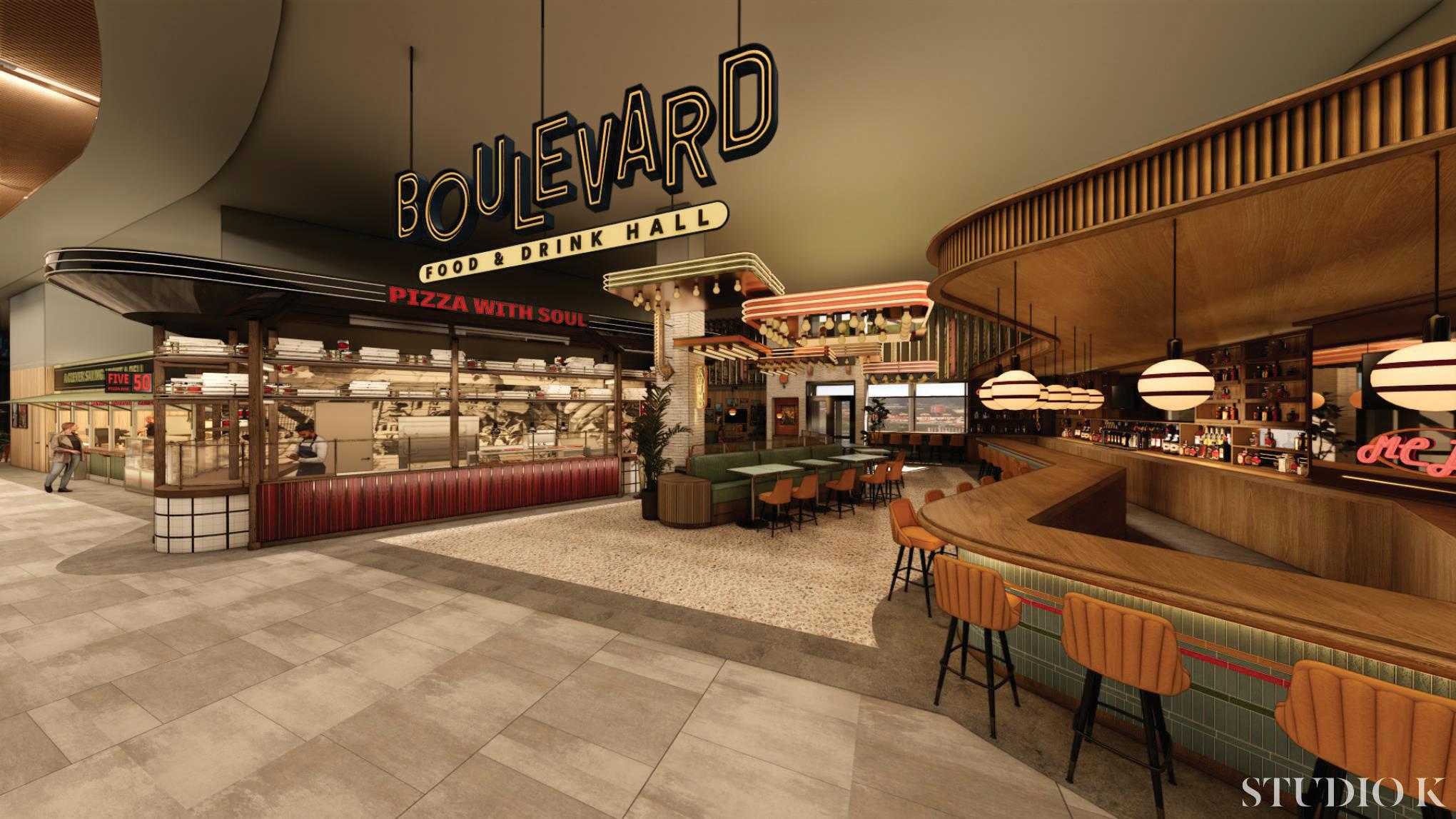
definitely have an advantage in being here versus introducing a very new concept to the market. So it’s not just political leaders and community figures: The residents here know who we are. The regulators understand that we have the expertise, with the workforce and our leaders, to stand up and to comply with our regulatory duties. Those are some of the things that are an advantage of having an existing casino.
How much of the gaming inventory was replaced?
We were very strategic with that. We talked to our customer base. We brought back the games that were favorites to our customers. So there were a few hundred of those legacy-type slot product … what our customers love but also what the market needed. We feel that we have great representation of new and leased product that customers love on the slot floor – and on the table games that customers really enjoy.
The thing that we doubled down on was we did not have any baccarat play at our old Joliet facility. That room has exploded today. That has been well received in our market. It was kind of a surprise for all of us that that room has taken off, giving our customer base exactly what they wanted. We’ll continue to listen to feedback and modify the floor as we need to, based on that feedback.

What would be other highlights of the new gaming product?
More leased games. Customers, when they go to a facility on the weekends, want to get on their favorite game. We ensured that we have more of the favorite titles out on our casino floor than any of our competitors. That was our positioning. So when a customer comes here, even if it’s a weekend, they’re

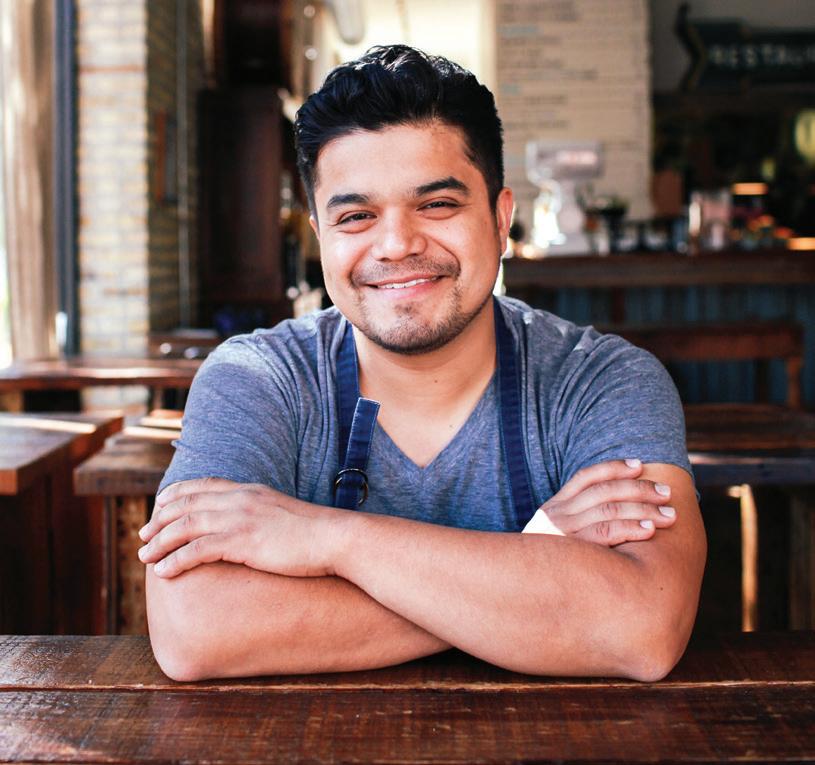
going to be able to get on the product here, on our gaming floor, versus going to a competitor that doesn’t have the footprint that we have.
On the table games side of the business, our craps, roulette, and carnival gaming, we have more of those that customers can come and enjoy as well. We feel really good about our positioning, about how we laid out our slot floor and our table game product.
How big of a coup was it to lure Giada de Laurentiis away from Caesars Entertainment?
Fun fact: We didn’t lure her away. Caesars knew full well about our partnership. She still has her
restaurants in Las Vegas. I don’t get into the business of how all that happened. I’m sure she had her conversations with her organizations. She has a big personality. She loves to be in her restaurants. For anyone that’s out there that has not visited, continue to look at our website: She will continue to show up at her restaurant during events, book signings and just meeting customers in general.
How important is the sports book and the ESPN brand?
It’s unique to Penn. It’s unique to Hollywood. It is a competitive advantage to us. For example, any UFC championship fight we’re going to show for free. Any UFC championship or other match, you can come here to watch that. The Alvarez-and-Crawford fight, we had that for free to the public. It was standing room only throughout our venues. Any major boxing event, pay per view or other, you’re going to be able to come to ESPN Bet to watch those events. We are going to show everything. We’re not just here for football: We’re here for baseball, boxing, UFC, tennis, soccer … any and all of it, you’re going to be able to come here and see those great events.
By the way, if you want to request something, come here. We’re going to give it to you. We have a nice, private lounge for customers to be able to come and reserve. You can bring up to 15 of your friends. You can have some great food. You can have your own
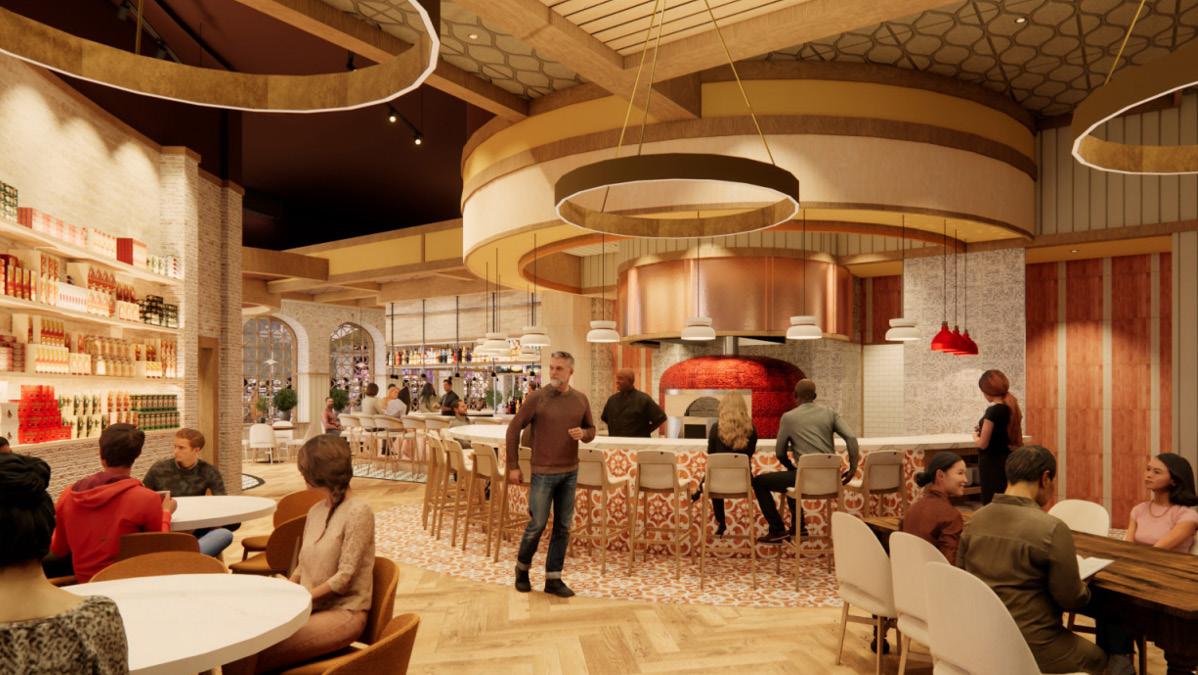
game night or game day. That’s the amenity we think is going to be great for the sports enthusiasts here in Chicagoland. It’s a great venue to come and watch. I always tout that we have the largest sports betting screen in Chicagoland: 43 feet by nine feet. That TV is incredible.
Why did Penn decide not to augment Hollywood Joliet with a hotel?
I don’t know the answer to that and I don’t even want to fake it like I understand it. I could tell you that, with the investment into Joliet, Penn is 100 percent invested in Illinois with the two products that we have that spend almost $600 million.
Chicagoland is a highly competitive market. How do you plan to stay at the forefront?
We are the official casino sponsor of the Chicago Bears. We’re looking for other casino sponsorships in the Chicago market. We have drawings every weekend to give away a Chicago Bears suite. If you have not come here, come and play, earn an entry and those drawings are on Saturday afternoon. Since we’re the sponsor, we do things like experiential field trips to the Chicago Bears, to have brunch with the players and coaches. We get you out on the football field for pregame. We’ll put you up in a suite or we’ll give you any other seat in the house. Those are some of the things that we feel we can do to create a competitive advantage in this market.
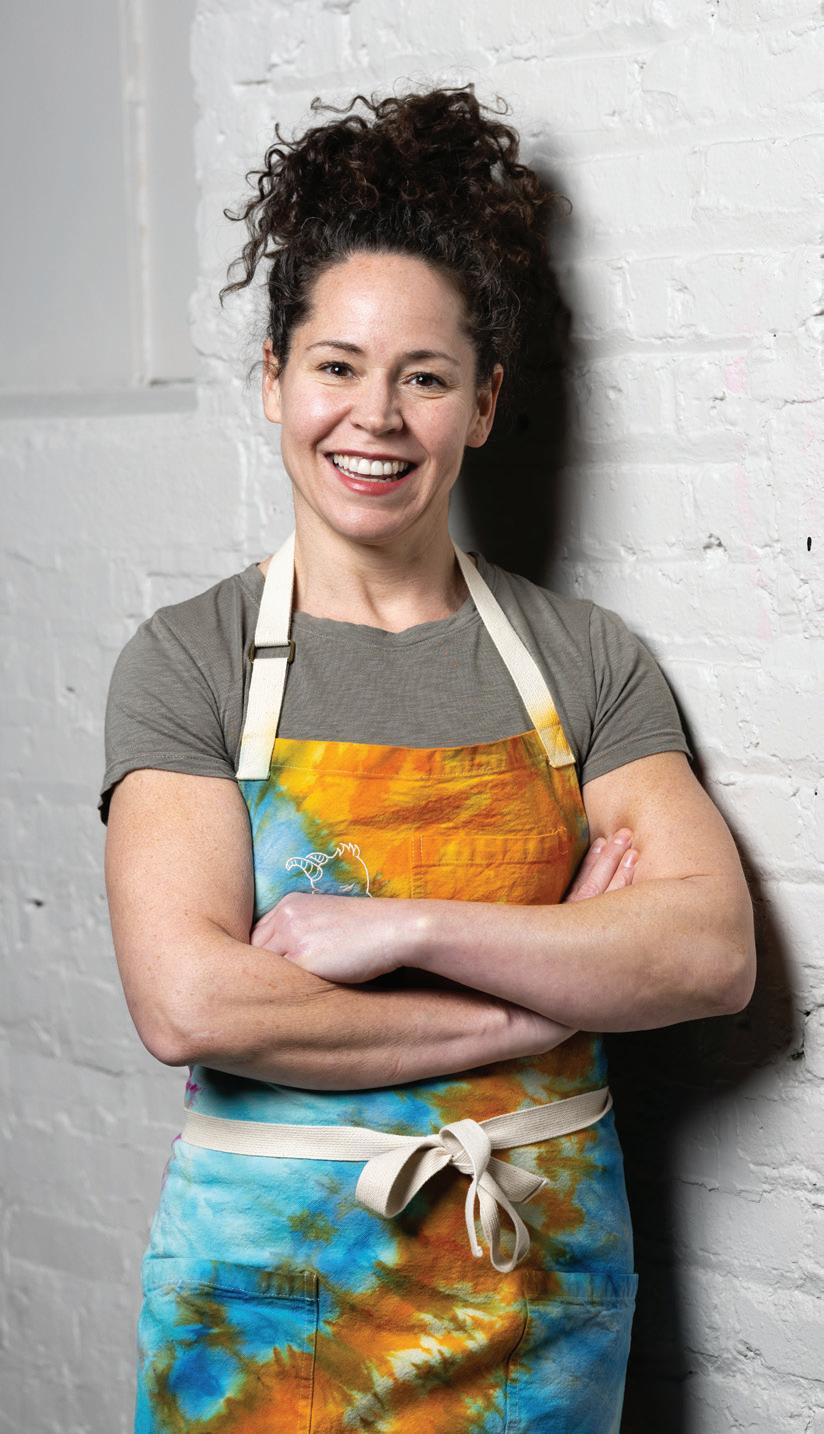



Casino Life speaks with Andrew Cammegh, sales director of Cammegh Ltd. By Andrew Behan
hen talking about roulette, one must mention the name of Cammegh. The Bethersden-based, British firm has been turning out wheels for roulette since 1989. That’s when Bill Cammegh first put his engineering skills into the service of casino table-game products. The rest has been history. Whether it be Las Vegas or Monte Carlo, Macao or Brisbane, you can hardly walk into a reputable casino that doesn’t offer a Cammegh product.
WWith a select team of 30, Cammegh has not only become known for its roulette wheels but has also branched out into baccarat and blackjack as well. To find out what makes Cammegh spin, Casino Life Publisher Peter White sat down with son Andrew Cammegh. Their conversation has been edited for clarity and length.
Cammegh has become synonymous with precision engineering in roulette wheels. How has the company’s philosophy shaped its reputation?
Cammegh has been established for 37 years and, from day one, our approach has been rooted in precision engineering. My father, a chartered mechanical engineer, immediately recognized that a roulette wheel is a product which, by its very nature, demands absolute accuracy. That engineering focus is what sets us apart from competitors, who may approach wheelmaking from a furniture-manufacturing perspective.
We’ve always concentrated on metallurgy, alloys, and advanced machining techniques to ensure reliability and precision. This engineering-first philosophy means our wheels are inherently robust, which reduces the need for aftercare. At the same time, customers know they’re investing in something

of lasting quality. That confidence has been central to building our reputation.
What does tailoring each and every product for its owners mean in practice, and how does this differentiate Cammegh from other manufacturers?
For us, tailoring starts with listening. Some customers want a classic, single-zero wheel with traditional mahogany veneer and nickel-plated turret. Others want something highly customized – a unique finish, colored bowl or personalized artwork. What differentiates Cammegh is that, no matter how creative or bespoke the design, our engineering standards remain consistent. The aesthetic may change but the integrity of the engineering never does. That’s what guarantees both reliability and individuality.
Research and development are central to your work. Can you highlight recent innovations in roulette-wheel design or technology?
A standout example is our Mercury 360 RRS (Random Rotor Speed) system, which was recognized with Casino Product of the Year at the European Casino
Awards. RRS randomizes rotor deceleration on every spin, making it impossible for advantage players to predict outcomes through wheel clocking or technology-based methods, such as those used in the famous 2004 Ritz Casino case. Today, RRS is fitted in around one in three of our manual wheels. It has become a core product, protecting both casinos and players by ensuring fairness and security.
Cammegh has evolved alongside the industry – from manual to automated wheels and digital integration. How have you adapted to this shift?
Our Slingshot 2 wheel, launched in 2006, set the benchmark for automated roulette in both land-based and online casinos. Its unique design keeps the ball in view at all times, reassuring players that outcomes are transparent and untampered. Digital integration has only increased its importance. Whether on an electronic terminal or streamed online, the super reliable Slingshot 2 provides the same reassurance of fairness, making it indispensable for operators worldwide.
Side bets and enhanced engagement are increasingly important. How has Cammegh incorporated these into your product range?
Spread-Bet Roulette has been a major success for our customers. Unlike other variants that reduce payouts to fund enhanced odds, our side bet runs alongside the traditional game. Straight-up bets still pay 35:1 but spread-bets can offer up to 1,200:1. The appeal is twofold: Players enjoy the chance to win big without losing out on straight up bets, while operators benefit from increased margins and time-on-device. Following this success, we’ve expanded the concept with Spread-Bet Baccarat and Spread-Bet Blackjack, which we’ll showcase at Global Gaming Expo.
Your billboard displays are widely used. What role do they play in enhancing both play experience and operator efficiency?
Displays are a vital part of the modern casino. The Cammegh Billboard Display brings a highly customized solution with colored chips, cloths and the roulette wheel design itself faithfully reproduced digitally in the skillfully produced, animated graphics. Every order undergoes a design process, with our in-house graphics team consulting the customer directly to ensure this high level of attention to detail is
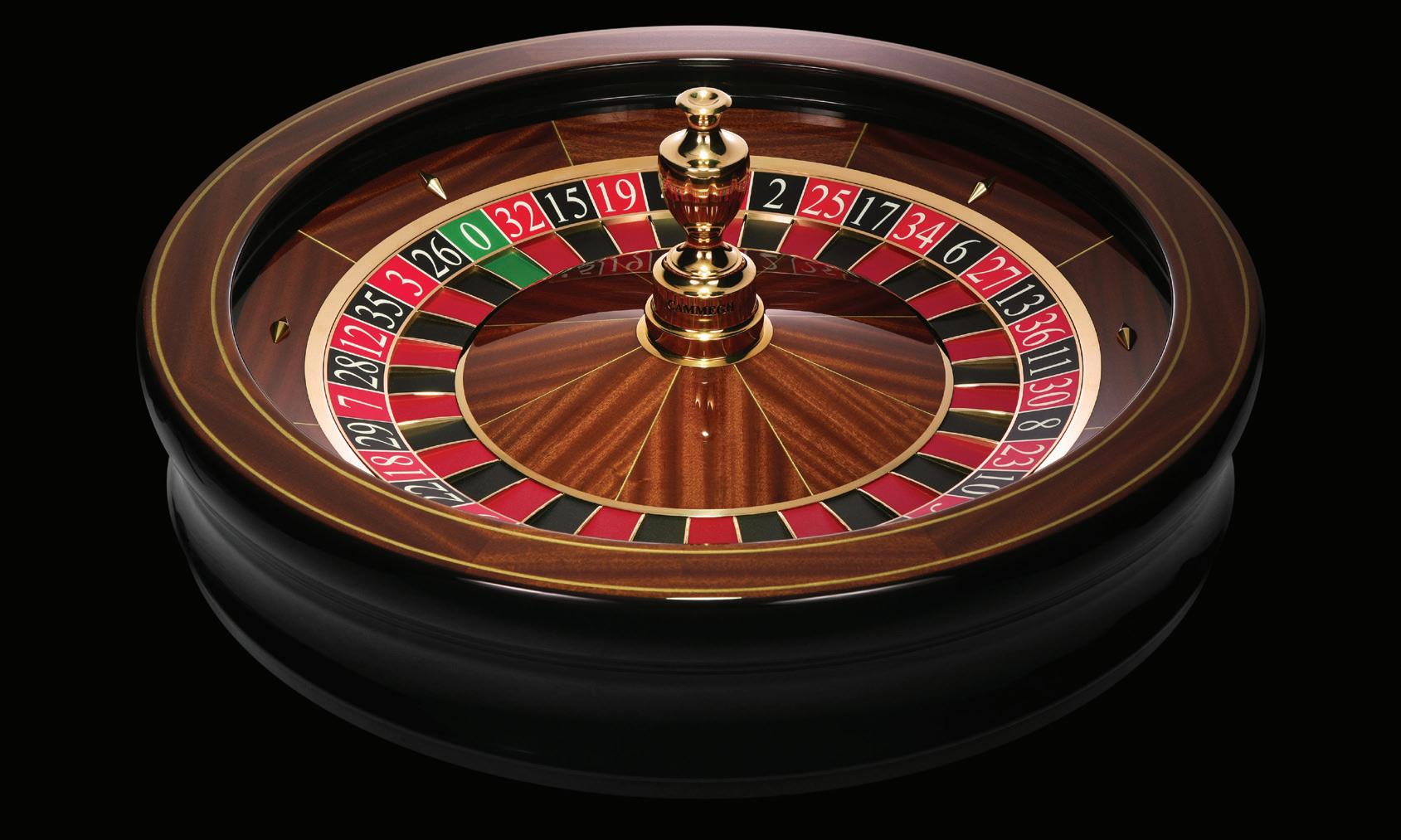
The wheels we created for the Fontainebleau in Las Vegas are among my favorites – the level of detail, materials and finish were extraordinary. Similarly, the wheels designed for Bombay Casino in Tallinn, featuring sculpted dragons and tigers, represent some of the most beautiful pieces we’ve ever built." “
executed perfectly. The displays can be tailored to fit the décor of the casino, promote side bets or present statistical highlights like “The Chaser.” Streamed sports or marketing content, or with the help of Argon, our wheel-analysis software, the Billboard, can also track dealer performance. This combination of functionality and creativity not only engages players but also provides operators with valuable oversight of data and enhance productivity.
Cammegh is known for bespoke solutions. Can you share recent standout projects?
The wheels we created for the Fontainebleau in Las Vegas are among my favorites – the level of detail, materials and finish were extraordinary. Similarly, the wheels designed for Bombay Casino in Tallinn, featuring sculpted dragons and tigers, represent some of the most beautiful pieces we’ve ever built.
These projects are energizing for us – they push us to continually raise the bar. Seeing the customer reaction is also a buzz.
Where are you seeing the strongest demand today?
Our wheels are in demand worldwide – from New Zealand to Nevada, aboard cruise ships or used in gaming studios globally. While no single region dominates, the online sector is currently driving the most innovation. Online operators push for efficiency, scalability and security, which allows us to refine products in ways that also benefit land-based casinos.
How does Cammegh maintain quality and consistency across such a global market? Consistency comes from control. Almost all manufacturing processes – CNC machining, milling,
Get Into Casino Life & Sports Betting Operator TV and gain insights from Presidents, CEOs, Owners and Senior Management at the World’s Leading Resort Casino and Sports Book Operators along with latest developments from manufacturers and Suppliers along with Gaming Equipment and Systems providers from Senior representatives at a select number of leading organisations in the Global Gaming Industry.


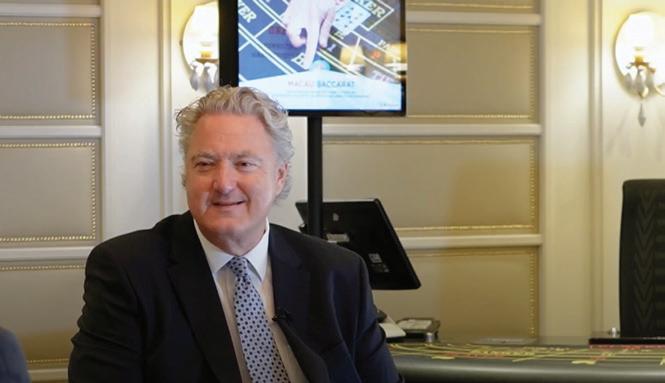

turning and assembly – are carried out in-house. This ensures every wheel meets the same high standard, regardless of where it’s shipped.
Durability is also critical. Much of our R & D budget is invested in materials and manufacturing techniques that enable our wheels to withstand varying temperatures and levels of humidity. Most casinos operate within a narrow temperature range, but our customers are situated all over the world and temperature can vary hugely during transportation, a factor that can impact a roulette wheel’s long-term performance. The materials we use protect against this. The same applies to humidity: Ensuring a wheel performs equally well in the arid environment of Nevada or the changing environments of cruise ships is a must.
Looking ahead, what opportunities do you see in the next five years?
Automation and electronic gaming will continue to grow, which presents both challenges and opportunities. Our focus is on keeping live roulette exciting through innovations like side bets, promotions and new game mechanics. At the same time, much of the opportunity lies online. We’re developing new products specifically for use in the digital space, with a major launch planned for Barcelona that I believe will be game-changing for many.
Sustainability is a growing priority. How is Cammegh responding?
Because we manufacture in-house, we avoid the carbon footprint of extensive outsourcing. Our wheels are built to last and we use recyclable materials wherever possible. Longevity, efficiency and responsible sourcing are central to our approach.
Finally, what can visitors expect from Cammegh at G2E Las Vegas 2025?
We’ll showcase our world-leading roulette wheels, including the Slingshot 2, Crystal Wheel, Eyeball technology, our Argon wheel-analysis software and the Spread-Bet suite of games. While our next major product launch is scheduled for Barcelona, G2E will be a great opportunity to experience our core innovations up close.
And your commitment to the North American market?
We’ve held licenses in Nevada, New Jersey, Connecticut and other states for over a decade, and we maintain a full-time service team in Las Vegas. Roulette is enjoying renewed popularity in North America, and our goal is to expand our reach while supporting operators with the same quality and reliability that have defined Cammegh globally.
We’ll be exhibiting at G2E Las Vegas – a market we love and one it’s very easy to get excited about. We’re really looking forward to welcoming our customers and industry colleagues to the Cammegh stand #2026.
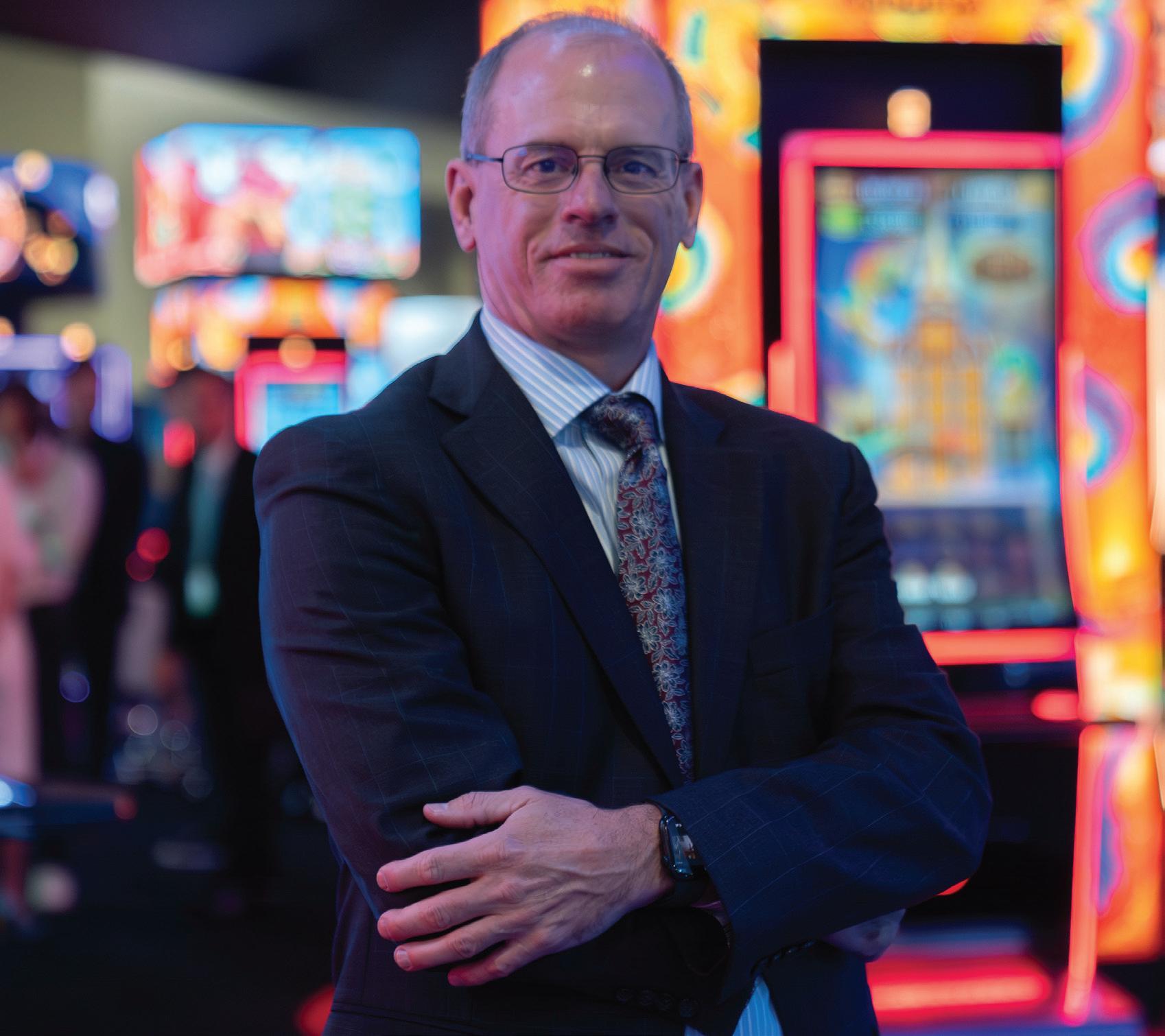
Damien Connelly
Zitro has earned its reputation as one of the industry’s most dynamic innovators and this year’s Global Gaming Expo promises to be its boldest statement yet. Under the leadership of CEO Derik Mooberry, the company has transformed itself from a global leader in video bingo into a formidable slot-machine supplier, redefining its place on casino floors across America.
With its footprint at G2E 2025 more than doubled from last year, a showcase of groundbreaking content, plus a highly anticipated new unveiling, Zitro is signaling its ambitions on a global scale. In this Casino Life interview, Mooberry shares insights into Zitro’s rapid U.S. growth, the momentum behind its award-winning CONCEPT cabinet and the collaborative strategy driving the company’s next chapter.
Derik, Zitro is always one of the most talked-about exhibitors at G2E. What can visitors look forward to from Zitro at this year’s show? Are there any surprises at which you can hint?
Visitors to our booth are in for an exciting experience. First, the size alone will make a statement — we’ve more than doubled our space from 2024, and it remains in a premier location on the show floor. Beyond that, we will showcase a wave of new content, including a new surprise that will be unveiled at G2E. We’re incredibly excited to reveal it and we can’t wait for attendees to experience it first-hand.
As CEO of Zitro USA, what excites you most about Zitro’s journey right now? Is there something at this year’s G2E that feels like a milestone for you personally?
What excites me most is Zitro’s continued momentum in the U.S. market. Our goal has always been to be a meaningful, trusted supplier in the U.S. and the last four years have demonstrated remarkable growth. In fact, in the first eight months of 2025, we contracted more machines than we did in all of 2024. This pace of growth underscores the market’s response to our products and the partnerships we continue to build with operators.
You’ve overseen Zitro’s transformation from a leading video-bingo company into a major slot contender. How is that strategy evolving as we head into G2E 2025?
I would describe this phase of Zitro’s growth as a transition to a global gaming supplier. While we remain one of the world’s best suppliers of bingo content, our entry into the Class III market in 2017 marked a strategic shift. Since then, we’ve steadily strengthened our position in the U.S. and I’ve been privileged to play a role in accelerating that growth. This evolution reflects our overall goal: to provide operators and players
worldwide with a broad, diverse, and innovative product range.
Last year Zitro showcased some breakthrough cabinet designs and new multigames. How have operators and players responded, and how does this feedback shape what you’re bringing to G2E 2025?
The launch of our CONCEPT cabinet at G2E 2024 was a big breakthrough for Zitro. It’s the biggest and boldest cabinet we’ve ever created in the company’s history. The response from casino operators has been overwhelmingly positive, particularly regarding player engagement and acceptance. That feedback has been invaluable. It drives us to continue innovating and expanding our offerings even further, ensuring that everything we bring to G2E 2025 delivers engaging experiences and proven performance.
Your CONCEPT series was recently rated number one by Eilers & Krejcik Gaming. How important is that recognition and how does it influence Zitro’s positioning going into G2E?
This recognition is incredibly meaningful. We work tirelessly to establish our brand, and build to trust with casino operators and players. Being rated number one by Eilers & Krejcik validates the effort we’ve put into understanding U.S. player preferences and creating games that resonate.
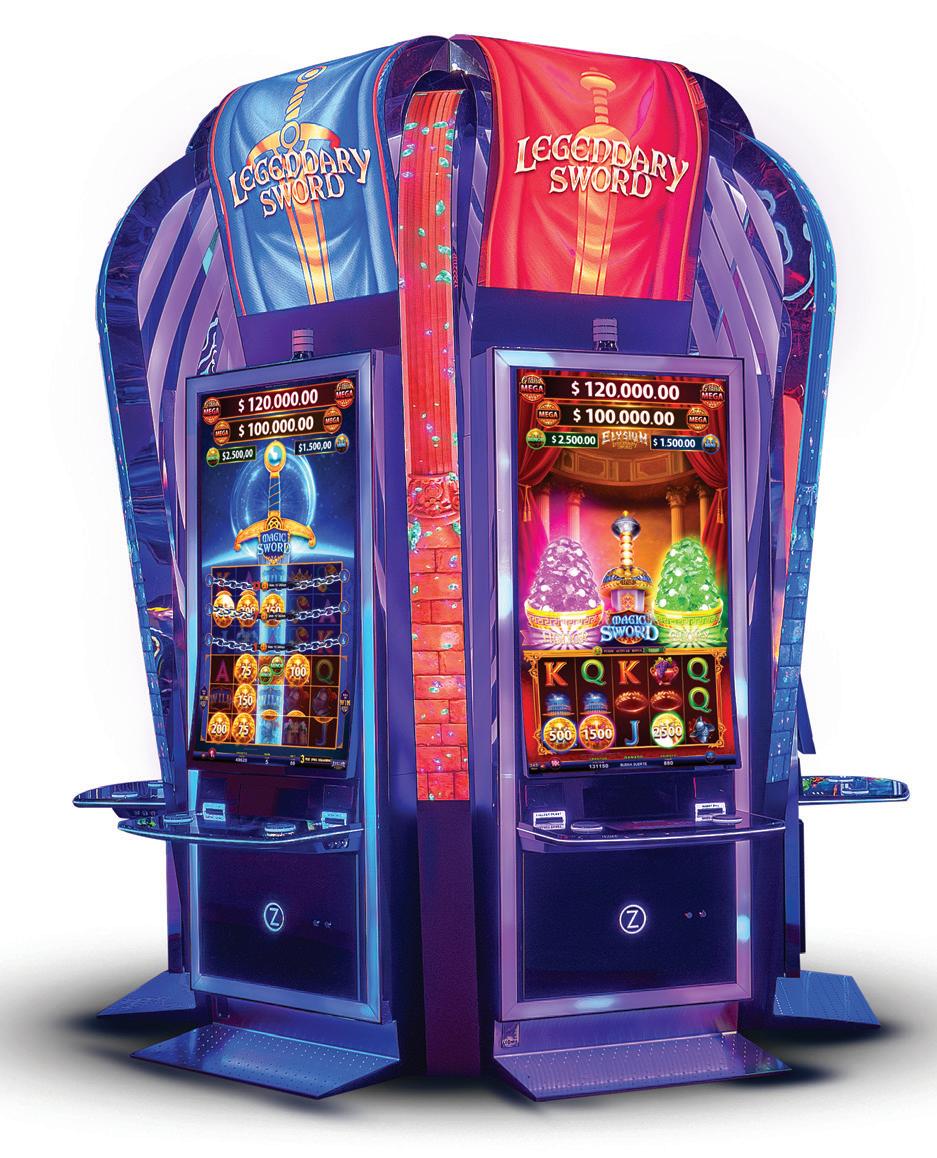
It also reinforces our positioning as a leading innovator in the market, giving us even more confidence as we head into G2E 2025.
The U.S. market is highly competitive. What progress has Zitro made in securing its place on American casino floors and how significant is G2E for building those relationships?
The U.S. market is indeed competitive, with established manufacturers operating in every state and players accustomed to their games. Yet players enjoy diversity, and



operators seek products that stand out. We offer a compelling portfolio of content and cabinet designs that operators and players respond to positively. Trade shows like G2E are essential for building relationships, showcasing our innovations and providing operators a first-hand experience of our latest offerings.
Zitro’s success often comes down to strong collaboration with operators. Can you share how you’re working with partners to tailor products to their specific markets?
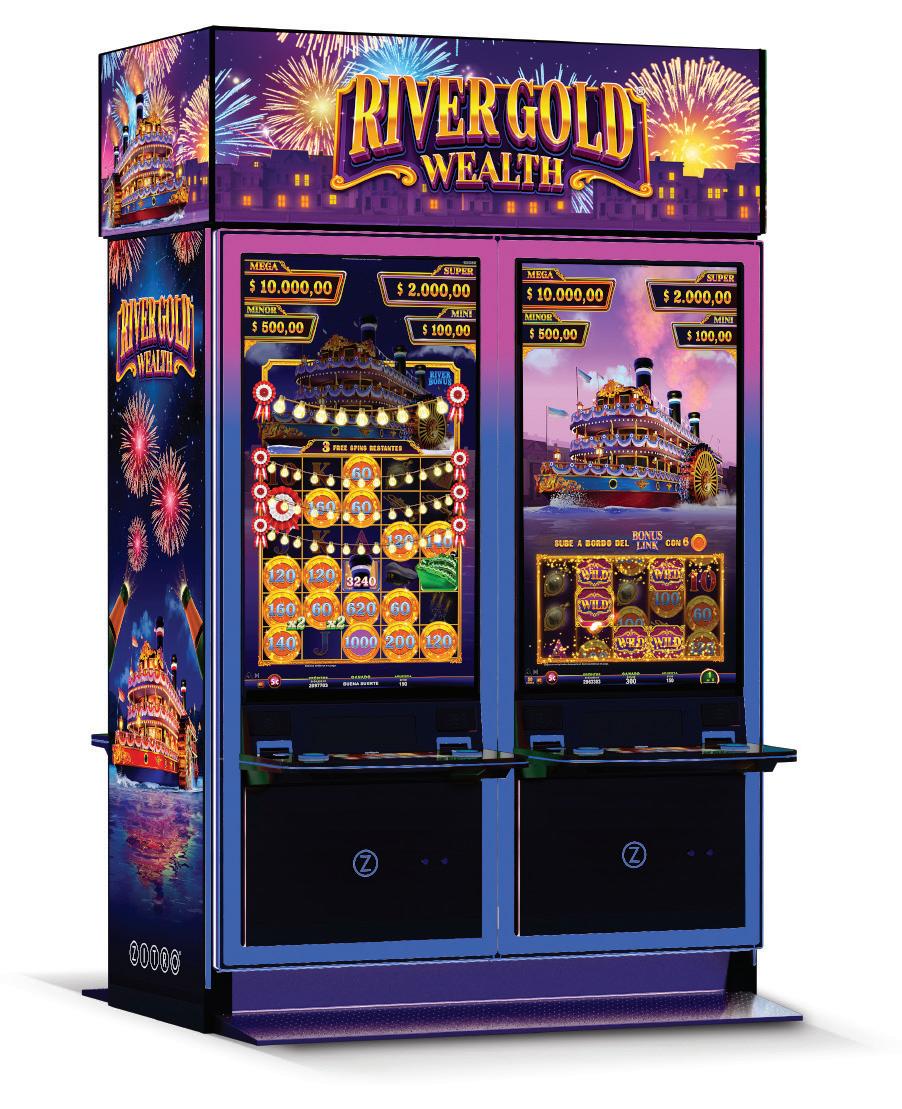
Operator collaboration shapes how we develop our games and cabinets. We listen closely to our customers about emerging trends and what players respond to on casino floors. Our engineering and design teams then turn those insights into games and cabinets tailored to meet those needs. The success

we see today is a direct result of that partnership between our team and our operators.
Beyond G2E, what are Zitro’s priorities for 2026 and beyond? Where do you see the next big opportunities for growth? Looking ahead to 2026, we’re poised for another exciting year. We’ll launch new hardware, debuting at G2E, and expand our footprint in global markets. Our focus will remain on innovation, delivering games and experiences that engage players, and growing our relationships with casino operators worldwide. The opportunities are immense, and we are committed to leading the way with innovation and quality.
Finally, if you had to describe Zitro’s G2E 2025 presence in 10 words, what would they be? At G2E, we bring innovation, performance and fantasy to life!
7,435
4,330



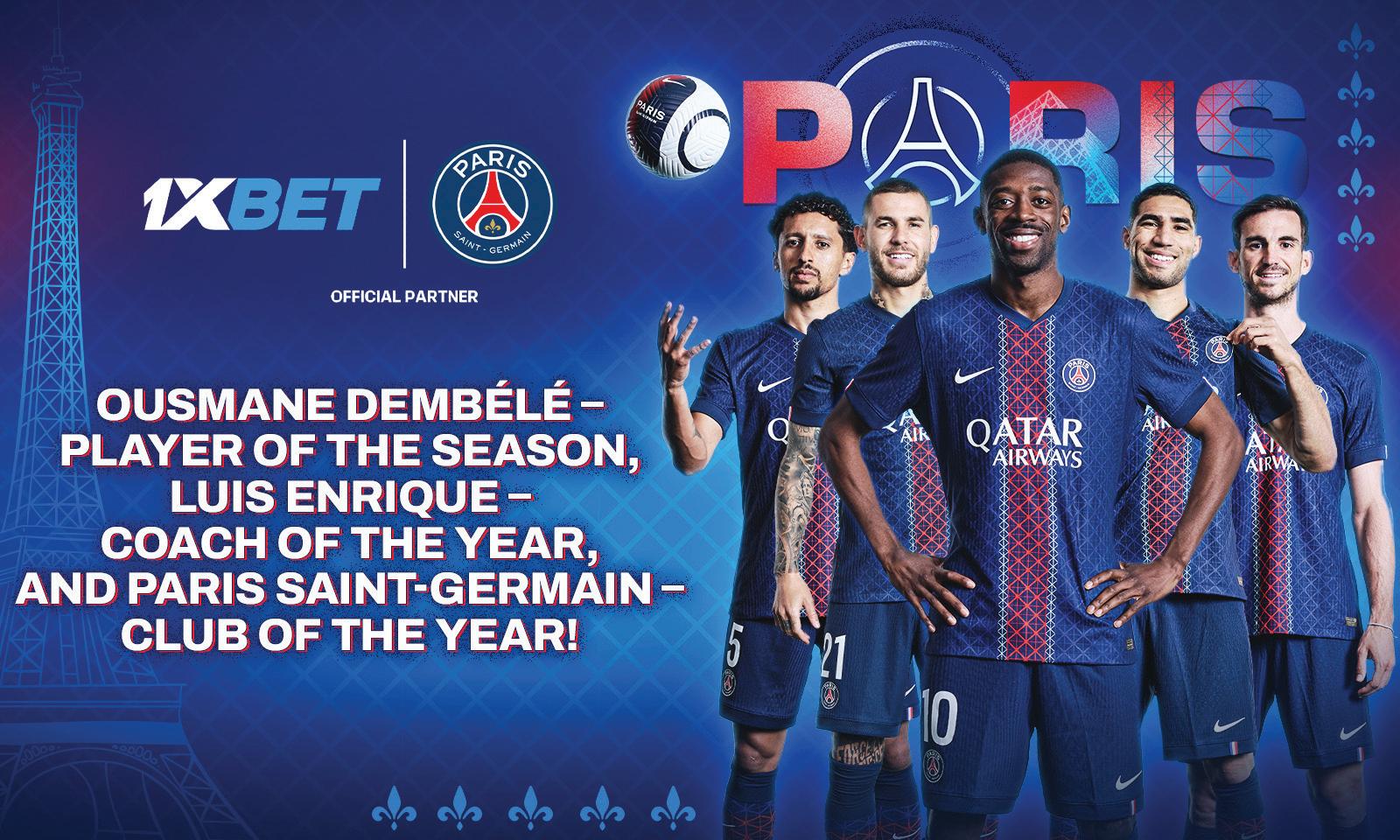
1xBet congratulates its official partner, Paris Saint-German, on its welldeserved awards for the outstanding achievements!
In 2011, Qatar Sports Investments came to Paris Saint-Germain to make it the best football team in the world. Over the past 14 years, the Parisian club has become the record holder for Ligue 1 titles but its main objective was to win the Champions League. PSG came close to triumph in 2020, losing in the final. Other achievements included reaching the semifinals in 2021 and 2024.
Paris Saint-Germain showed an enduring determination to succeed, the ability to keep going after painful setbacks, and the skill to find the right strategy. All these qualities were evident in the 2024-25 season, when one of the youngest teams
in the Champions League phase came close to elimination but managed to find a way out of a difficult situation. Game after game, Paris Saint-Germain were approaching the ideal parameters of football. In the knockout phase, the Parisians defeated Liverpool, Aston Villa and Arsenal, and in the final they crushed Inter Milan 5-0, the biggest victory in the history of Champions League finals.
In 2025, PSG won five trophies and earned the award for best team of the year. The Champions League triumph brought Paris Saint-Germain global recognition. 1xPartners is also world-renowned – it is the flagship affiliate program of 1xBet, which has been operating successfully in over 150 countries for nine years, helping more than 500,000 partners to earn money. The payment system takes into account the specifics of dynamically developing markets and the products of local operators, supporting over 250 payment methods.
Ousmane Dembélé became the second Paris SaintGermain player, after Leo Messi, to receive the Ballon d’Or. He’s also the first footballer to be recognized as the best for his achievements with the Parisian club. Back in 2015, Dembélé demonstrated his enormous potential at Rennes but it’s only now that Ousmane has converted his phenomenal talent into maximum efficiency. In the 2024-25 season, Dembélé scored 35 goals and made 16 assists in all competitions. These statistics and the trophies he won explain why he deserves the Ballon d’Or.
Dembélé has become a player who can do a lot on the pitch and regularly makes a difference for his team. 1xPartners also offers a huge number of advantages for its clients:
• lifetime payments of up to 50 percent from referred players
• exclusive terms for VIP partners
• high conversion rate – up to 70 percent of registrations turn into first deposits
• prompt support from personal managers
• regularly updated database of promotional materials
• automatic weekly payments.
In 2015, Luis Enrique won five trophies with Barcelona, including the Champions League. However, at that time the Spanish coach had a roster of great players, led by Leo Messi. At Paris Saint-Germain, Luis Enrique was given a different task: The club decided not to rely on superstars and instead build a project around young, ambitious players. In his second season, the manager perfected every element of the team’s play and led PSG to a historic triumph. Luis Enrique also found the right approach to Dembélé. Under the Spaniard’s guidance, Ousmane reached a whole new level and secured many important victories for the team with his goals.
The award for best goalkeeper went to former Paris Saint-Germain player Gianluigi Donnarumma. He was recognized primarily for his reliable performances for the Parisian side.
1xBet and Paris Saint-Germain recently extended their partnership agreement until 2028, so we can look forward to new seasons, new challenges and new victories. We’re confident that, with Paris SaintGermain, we’ll give fans not only great football but also unforgettable emotions.
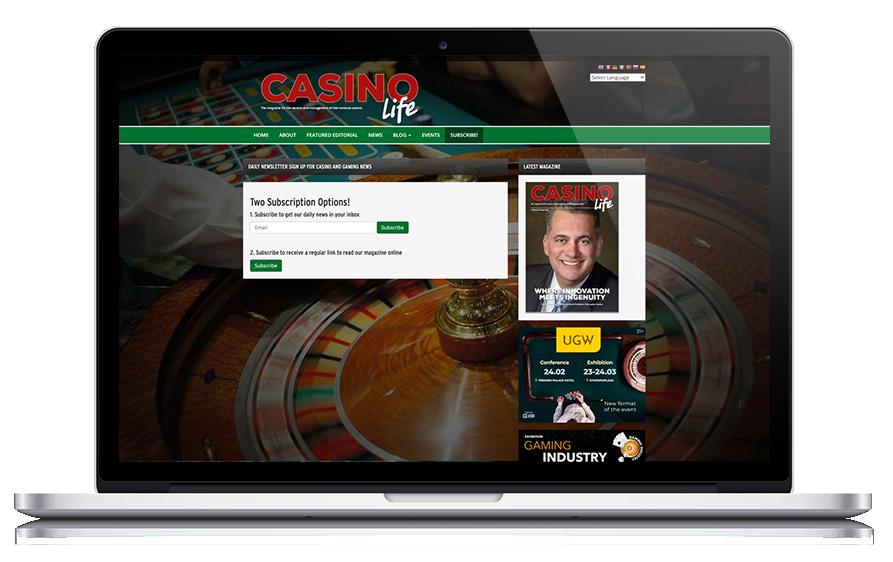


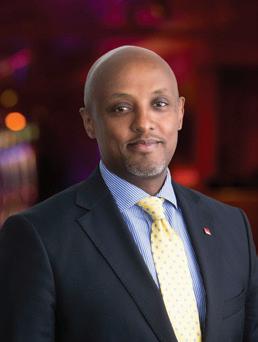

















Jack Symons, co-founder of Gamban, on navigating the scale, risks and solutions of black-market gambling. By Peter White
lthough the UK Gambling Commission told them to peddle their wares elsewhere, Gamban is a global force for safer online-gambling experiences. Blocking 190,000 websites speaks for itself. So do a 90 percent customer-satisfaction rating and 55,000 active users. For some straight talk on the unlawful morass that is black-market iGaming, our Peter White sat down with founder and CEO Jack Symons. Their conversation has been lightly edited for clarity.
AIllegal online casinos and the affiliates they use openly advertise on social media, often copying the branding of respected operators. Why does it seem that nothing is done—are these billion-dollar social media operations untouchable? Seemingly so! Bureaucracy may slow action but, let’s not kid ourselves, the real issue is profit. Illegal operators generate revenue and social-media platforms are all too willing to look the other way.
Countless meetings and campaigns from gambling harm organizations have produced nothing in terms of meaningful change. This inaction isn’t accidental. It’s a choice, and it’s one that puts revenue over the safety of young people and vulnerable individuals.
The owners of illegal online gaming domains and their affiliates also target legitimate websites. Some sites host banners or redirects linked to these illegal casinos without the owners’ knowledge, as we discovered ourselves. What steps can organisations take to ensure all advertising partnerships are thoroughly checked to avoid inadvertently promoting illegal gambling? Verifying a gambling license with the regulator is straightforward for any advertising business. The harder challenge is the recent surge of non-gambling sites that operators exploit. Gambling sites cuckooing behind children’s-cancer charities or hospice websites is not just misleading, it’s disgraceful. Affiliates and
operators who engage in this are beyond redemption, and advertisers should make it routine to check every link they promote.
What can authorities do to educate and inform website owners so they check their sites aren’t inadvertently hosting banners linked to illegal online operators?
We recently received two fines for using unlicensed images – a lottery ticket and a photo of a high street bank – on our website. Since then, we’ve removed anything that might trigger a third fine and now ensure everything we publish is fully licensed. Nothing motivates website owners quite like a hefty financial penalty. In fact, once Google gets its own house in order, it could take a step further and delist sites from search results that promote illegal online operators. It could also stop selling data to affiliates who are targeting people likely to be addicted to gambling, based on their profile. That would actually make a difference.
With billions of dollars involved with illegal online gambling, governments are losing a significant amount of tax revenue. Isn’t it in their interest to take stronger, more-affirmative action simply from a financial aspect, let alone the social and domestic impacts?
Absolutely it’s in their interest, especially given that much of the targeting and activity on black-market sites comes from underage and self-excluded players. While we’ve seen a few ‘whack-a-mole’ attempts to block illegal sites, far more could be done. It would be smarter to learn from successes and failures in other markets. Perhaps Italy’s upcoming ‘cybersecurity shield’ will offer a model that actually works.
What are the main risks that black market gambling sites pose to players, particularly vulnerable individuals?
The most obvious risk is that these operators accept self-excluded and underage gamblers. This means they profit from a cohort that cannot control their gambling. They are under no regulatory obligation and they target a particularly vulnerable demographic. Safety measures offered by regulated operators are absent and there is no guarantee that players will be paid if they win. Payment methods are often unconventional — sometimes allowing for credit —
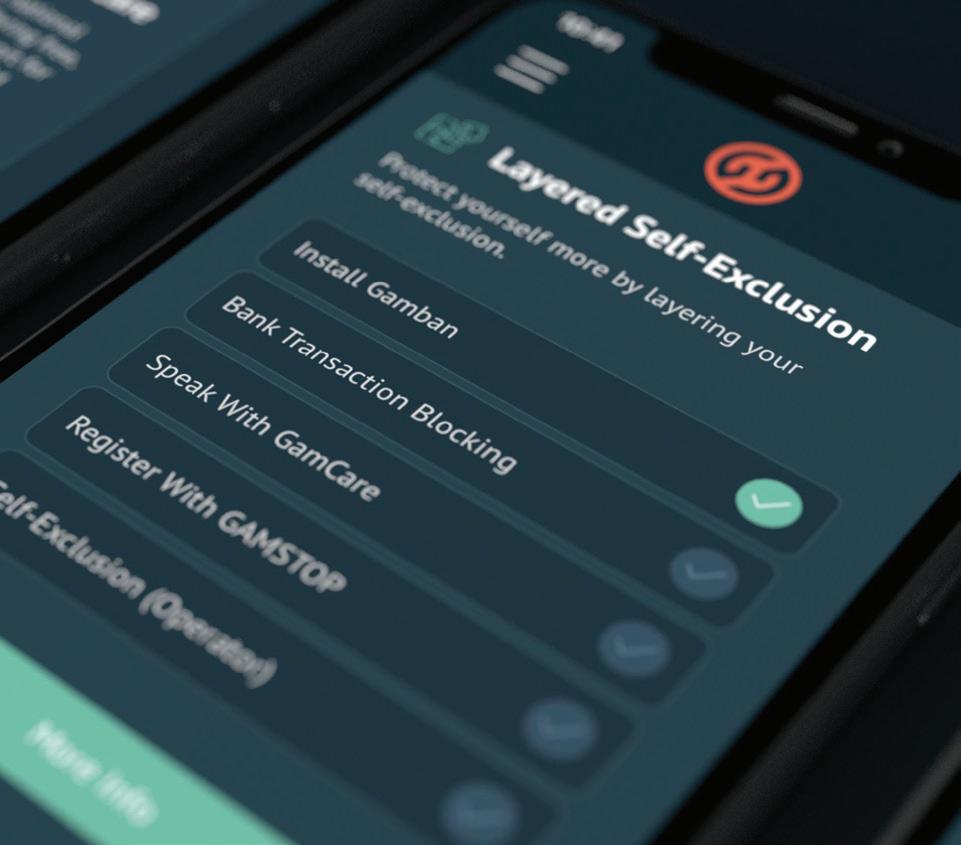
and bet limits can be far higher. Operating outside any regulatory oversight, anything goes. It’s a perfect sandbox for exploiting players – most of whom are children or people who have self-excluded from all regulated gambling sites.
A simple Google search for ‘non-Gamban’ produces a long list of operators. What does this say about the scale of the problem and the challenges in enforcement?
Whether it’s “not on Gamban” or “not on GAMSTOP,” these sites target people who have already decided they need to stop gambling – a decision rarely made lightly. It’s appalling that search engines like Google and review platforms like TrustPilot continue to display these dangerous results, despite repeated attempts to flag and remove them. Whether run by operators or affiliates, these targeted campaigns are profoundly unethical and entirely preventable, if search platforms chose to block this harmful content.
Why do you believe illegal gambling should be treated with the same seriousness as online narcotics or weapons sales?
Accessing weapons or drugs on the dark web requires deliberate intent. Illegal gambling doesn’t. For ordinary punters, it looks just like a legitimate site and is fully accessible without any specialist browser or hidden networks. That’s exactly where the danger lies: Harm is happening to people who don’t even know they’re at risk.


What role should governments, regulators and law enforcement play in tackling illegal gambling online?
There clearly needs to be a coordinated approach, ideally one that brings together stakeholders from the jurisdictions that spawn most illegal gambling sites and apps: Curaçao, Malta, Gibraltar, Cyprus … the usual suspects. Take the UK as an example: Stake, licensed in Curaçao but not in the UK, ended its whitelabel agreement with TGP Europe following regulator pressure – yet they still sponsor Everton, a Premier League football team. This should have been resolved immediately. Until it is, meaningful improvements online feel almost hopeless.
The damage caused by illegal operators risks harming the reputation of the licensed online betting and gaming sector by association, and this problem is only likely to grow. How concerned should the industry be?
Frustratingly, the regulated industry, represented by trade associations like EGBA and BGC, often treats the black market as a convenient smokescreen, using it to distract from necessary improvements to regulated operators. “If we tighten X, more people will go to the black market,” they argue. Yet they’ve been remarkably quiet about the reputational damage that illegal sites inflict on the regulated sector. And some of their members themselves constitute the black market in other jurisdictions such as Japan and China. I’m consistently surprised at how many people outside the industry know about “sites not on GAMSTOP” or “not on Gamban,” no doubt because these ads are now ubiquitous on adult websites. Bonus offers specifically targeting these unregulated sites appear in e-mails, texts and social media feeds. This should be a wakeup call: The public is drawing its own conclusions.
Are there any platforms or payment providers enabling black-market gambling that authorities should focus on?
Gamban has shared expertise and intelligence with regulators across multiple jurisdictions to help identify platforms offering black-market gambling. We can provide lists of thousands of unregulated operators but the question remains: What do you do with this information? Because while monitoring is important, without proper enforcement against the individuals running these platforms, and against the jurisdictions

harboring them, they will merely continue in another guise.
Gamban now has over 320,000 gambling sites and apps on its blocklist. How does your system detect and block new sites in real time?
Our intelligence comes from a mix of sources: regulator databases, user submissions, scrapers, AI, heuristics, regular expressions, rules and variations. But more is not always better. We don’t want users to feel overly restricted. For example, checking football results shouldn’t be blocked, even if many gambling sites are linked. The goal is to strike the right balance, which is effective coverage without over-blocking. If we could block fewer sites, we would. In the meantime, we block between 300 and 600 domains every single day.
What differentiates Gamban from other gamblingblocking solutions in terms of technology or approach?
Put simply, nothing comes close to Gamban in quality – it is far superior to any imitator. One organization, closely tied to the industry, positions itself as a charity and offers its product for “free,” while soliciting donations. They claim blocking software “need not cost much” yet complain about being under-funded. Because Gamban continues to set the highest standards in gambling-blocking software, they claim to be: “like Gamban, but free.” Yet we’ve found when

Sports Betting Operator provides technology features, news and new product information, keeping online gambling companies up to date with the fastest growing gambling sector in the world

A highly regarded team of Internationally experienced journalists, all of whom have a wealth of knowledge in online and land-based gaming involving, legislation, e-commerce, responsible gambling along with the latest online operating systems and solutions.

we’ve been brought in on various rescue projects that ‘free’ can end up being very expensive.
While their model risks a race to the bottom by continuously undervaluing blocking software, we are more focused on the end user, all of whom have been harmed by gambling operators and have overwhelmingly negative perceptions of the industry. What sets Gamban apart is relentlessly making the product as good as it can be: striking the right balance in blocking, preventing circumvention, minimizing battery-memory impact and ensuring compatibility across a wide range of devices.
Concerningly, if someone is directed to our competitor’s product first, they can often still access gambling sites, yet cannot remove it to install Gamban, leaving them fully exposed with no way to protect themselves.
It’s understandable, yet frustrating, that organizations look at alternatives and assume they are comparable. It’s easy to assume that if something looks functional that it must be equivalent – but gambling-blocking software is far more intricate. It requires constant diligence to stay ahead of operatingsystem updates, as well as attempts to bypass the software by the industry, and by individuals who install the product when the urge to gamble strikes.
We understand in this day and age that devices need to be mobile and therefore international coverage is critical to ensure speed and robustness. We use servers all around the world and our latency is beyond comparison. Additionally, each of our products is far more compatible with the sheer volume of devices than any competitor. We believe the greatest impact comes from partnering with proactive, high-level organizations (governments, regulators, and national treatment bodies) that have no conflicts of interest in delivering effective gambling-blocking software. These partnerships take time to develop but, once established, they allow us to provide meaningful support to people at risk of gambling harm.
Can you share any examples of how your intervention has directly protected users from illegal or unsafe gambling?
We strongly advocate a layered approach to self-exclusion. In the UK, this is exemplified by TalkBanStop, where we encourage combining tools like GAMSTOP, Gamban, and bank blocks, alongside support and talking therapies. With multiple barriers
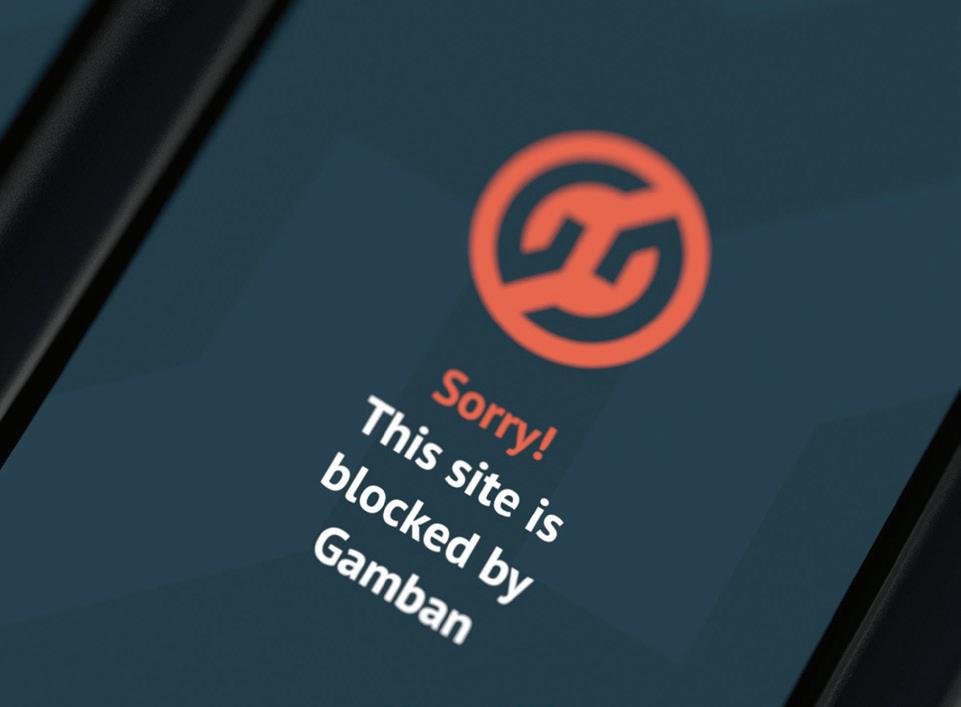
in place, accessing any form of gambling (including crypto, skins or gamified “trading-as-gambling” products) becomes much more difficult. Gamban’s particular strength lies in its ability to block illegal and emerging gambling sites and apps.
What is the next step for Gamban in tackling the global black market for gambling?
As the first esports sponsor focused on gambling harm prevention (Team ECSTATIC), we’re particularly interested in supporting those struggling with this emerging form of gambling. When we talk about young people and gambling, this is where it’s happening. This is sadly where tomorrow’s Gamban users are. Gambling is changing from something that takes place on green felt and across five reels to this diffused environment where the boundaries between gaming and gambling are increasingly blurred.
If you could implement one policy or technological change immediately, what would it be and why?
Independently evaluated gambling-blocking software as a license condition for all regulated operators. I’m not entirely sure why this hasn’t been introduced yet, but perhaps there are concerns inadequate services would be utilized as part of a box-ticking exercise.
The UK Gambling Commission will be reading this interview. What message have you for them?
When we offered to support your enforcement activity with our technology and blocklist, we were told this wasn’t something you were interested in. We stand ready to revisit that conversation should that sentiment have shifted.


The toughest thing to do at the blackjack
What is the toughest thing to do at the blackjack table? Is it doubling down your 11 against the dealer’s 10? Is it splitting eights against the dealer’s ace? Or is it hitting, sticking or doubling down on a soft 18 against the dealer’s two?
Your homework assignment for the week is to look at the basic strategy chart to answer each of those questions. The answer is, None of the above. The toughest thing to do at the blackjack table is knowing when to walk away whether you are winning or losing.
There are times when you are on fire at the tables. You can do no wrong. Each time you double down your 11, you get a 10. Each time you split, you get two powerful hands. You stick on your 14 against the dealer’s five and he busts. This game is easy. The chips are attracted to you like a magnet. You have doubled your money in 15 minutes. You have visions of quitting your day job and doing this as a full-time
career. Why would I want to leave the table now?
Does this sound familiar? What inevitably happens?
The double downs and the splits stop working. The dealer is making his hands and you are bleeding chips. You continue to stay at the table, believing that pendulum is going to swing back in your favor. After all, it did before. But not only do you give back your winnings, you also give the casino your original buy-in. You keep asking yourself, Why didn’t I quit when I was ahead? Again, does this sound familiar?
The reverse is also true. Nothing is working for you. Your double downs and splits are losing. The dealer is making hands on his bust cards, and you find yourself losing your chips in 20 minutes. You tell yourself that this is beyond probability and cannot continue, so you buy in for another $500, only to lose that as well.
You ask yourself, What have I done to upset the blackjack gods? You go to the ATM to get another $500, convincing yourself that your luck will change.
But that money is gone quickly, too. What will you tell your wife? If only I read the tea leaves sooner, knowing today was not my day and left the table when I should have. Again, does this sound familiar?
The casino is a master at manipulating your emotions and clouding your judgment. Hindsight is 20-20 in this game but you cannot predict the future, knowing the precise moment to leave. So how do you do it? You cannot control the future but you can plan for it. Therefore you set a goal; you plan and have the selfdiscipline to walk away when that goal is met.
There are several reasons why people do not do this. The first is ignorance. You must remember that the odds are against you. Some people feel they can honestly beat this game. Unless you are an expert card counter, the long-term prospects do not look encouraging for you. Yes, there are short-term swings but it is not a long-term reality. The casino knows that. Unfortunately, many players do not. This leads us to the next point, greed.
Many people are inherently greedy. There is a reason why greed is one of the seven deadly sins. People push their luck. They are winning and it feels great. Why would I want to end this euphoria? I have taken too many hits and now it is time for the good life.
They think it will never end. They are in denial that all good things will eventually come to an end. The “rush” has overtaken them and they are playing for the thrill, not for the money. Again, casinos are banking on this mentality preventing people from walking away when they should.
If someone says they play to win money and they do but continue to play, they are lying to themselves about their priorities. They are not playing to win money, because if they were, they would leave. They are more interested in playing cards and not the result. They are more interested in the pursuit than the victory. They are playing for the thrill. Psychologists and psychiatrists would have a field day with this one. On the flip side, why do people continue to play too long when they are losing? Again, there are several reasons for this. First, they do not set a precise loss limit. It can be $100, $200 or $500, depending on your personal financial situation. Play with money you can
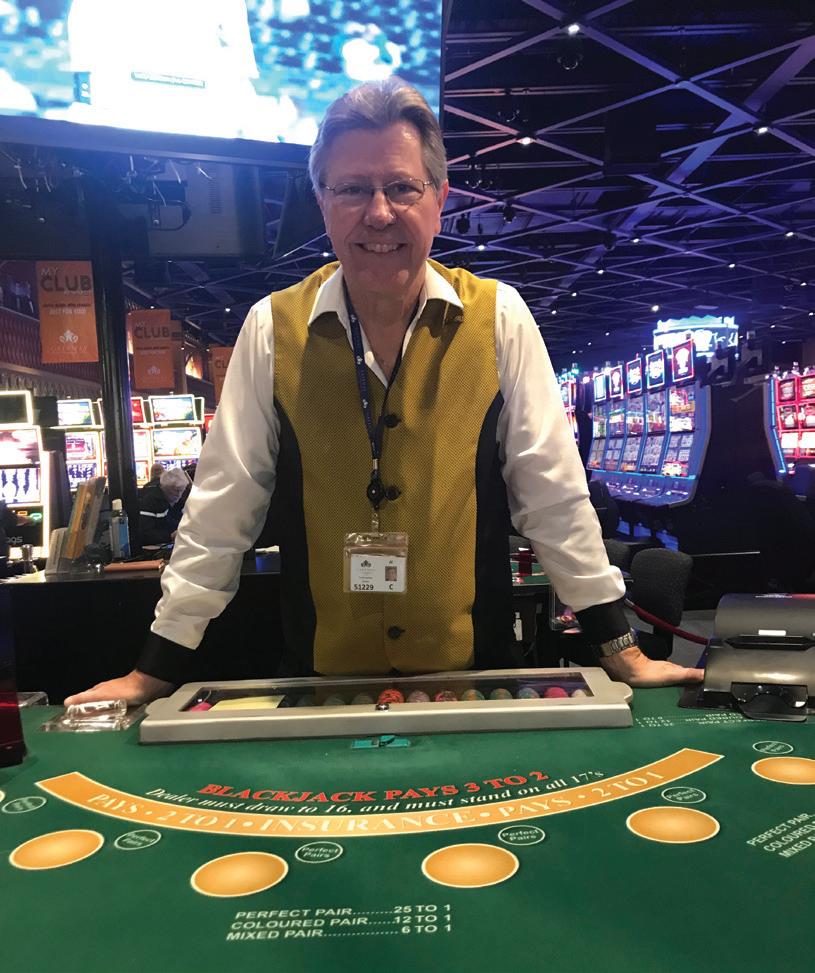
afford to lose. Many disregard this wise notion. Why? Assuming they do not have a gambling problem –which is another discussion for another day – it can be pride, ego or a sense of entitlement.
Some people are bad losers. They refuse to lose and will play at all costs regardless of the financial impact. They let their ego get in the way, and somehow justify to themselves they can chase their losses and get their money back. Unfortunately, in most cases, they lose even more. Pride, which is another one of the seven deadly sins, can also be a contributing factor. Waving the white flag can be a sign of weakness or cowardice. They believe in the saying winners never quit and quitters never win. They want to be a winner; therefore, they never quit. They have a sense of entitlement. If only they could swallow their pride, put their ego on a shelf and come to the realization they are entitled to nothing in this world. It sounds simple, but it is true. Set a goal, stick to it and then walk away win or lose. Everything you do in life is a choice. If you are not walking away when your goal is met, you lack discipline or self-control. Assuming you do not have an addiction, you can make the right choice. You are here for a good time, not a long time. Time is the casino’s friend; it is not yours. Knowing when to walk away is the sign of a winner.
Good luck at the tables and don’t forget to tip the dealer.






Sweden aims to tighten control of gambling operators. By Eugene Gerden
he government of Sweden – the largest country in the Nordic region and its major economic engine – plans to significantly tighten control for the activities of gambling operators in the domestic market. As part of this plan, the national government intends to expand the scope of the existing Gaming Act. This is the industry’s main enabling act. It pays particular attention to the fight with illegal and unlicensed operators, and it aims to attract foreign operators to register within the jurisdiction of the country.
TThe Gaming Act was introduced in Sweden in 2019, along with a licensing system that allowed commercial companies to offer online gambling to the Swedish market. An important aim was to ensure that gambling would take place under public control. The Swedish Gambling Authority (SGA) was given responsibility for supervising the industry.
However, in recent years the established SGA has become a subject of criticism from the Swedish government. This is mainly due to the inefficiency of its activities and serious shortcomings. That forced the state to tighten existing regulations.
“We will stop illegal gambling companies that exploit vulnerable consumers. We will do this by amending the Gambling Act so that it becomes more appropriate. This is one of the most important measures for a safer and healthier gambling market,” stated Minister of Financial Markets Niklas Wykman.
In fact, according to the Dagens Vimmerby business paper, the Swedish casino market has undergone major changes in recent years. From previously being dominated by state-owned players, such as Svenska Spel and ATG, the market has now been opened up to international competition. This has led to an explosion of new Swedish casinos and gaming companies, offering their services to Swedish players. A significant part of them, however, are located overseas and do not accord with Swedish gambling legislation.
In this regard, part of the plan of the SGA is to design additional measures that will help to attract foreign casino and gambling operators. The hope is for them to expand in the country’s market by receiving licenses for the Swedish market.
In accordance with official state statistics, up to 30 percent of Swedes still play on gambling sites licensed abroad or on unlicensed casinos. This is mainly due to the larger bonuses and promotions which are offered to them on foreign platforms. Swedish-licensed gaming companies cannot match that, as they are only allowed to offer one bonus per player and it needs to be moderate.
At present the Swedish gambling market continues to grow, both in terms of revenue and number of active players. This is in line with the trend, which has been seen in recent years, whereby digitalization of gaming – especially in online casinos and sports betting –has been driven by technological advances and an increasing acceptance of gambling as a popular leisure activity.
In recent years the level of competition in the Swedish gambling sector has significantly tightened. The most intensive competition is between licensed operators and foreign ones licensed in countries such as Malta, Estonia and Curaçao. These jurisdictions offer significantly lower tax rates and, according to many, more adequately regulate gaming licenses compared to Sweden.
An important part of the Swedish licensed gambling market is Spelpaus. This a national self-exclusion service that allows players to exclude themselves from all licensed gambling for a set period of time. Spelpaus has been a central part of Sweden's strategy to combat excessive gambling. The service has been used by over 115,000 players, indicating a clear need for such measures.
But despite Spelpaus and other similar initiatives, a significant proportion of players remain on unlicensed sites. This is partly because Spelpaus does not cover foreign operators, meaning that players who have been banned in Sweden can still play on sites outside the country. This creates a paradox wherein measures intended to protect players may instead contribute to increased use of unlicensed platforms.
To address the challenges, the Swedish government has considered various strategies, including tightening payment-blocking rules against foreign operators and improving channelization targets by making the Swedish market more

competitive. However, since it is legal for Swedish players to use foreign services, a careful balance between regulation and consumer attraction is required.
A part of the state’s plan is also the creation of conditions for more-active introduction of various technologies and technical innovations in the gambling sector of the country. This is despite the fact that many Swedish casinos are already now at the forefront of adopting new technology. In addition, Swedish players are often early adopters of innovations such as VR casinos and blockchain technology.
While online casinos are growing, state-owned Casino Cosmopol has been struggling. Recently, Svenska Spel, the Swedish state-owned gambling operator, announced plans to close its casinos in Malmö and Gothenburg due to declining profitability. More and more people are choosing to play online instead of visiting physical casinos.
Despite the challenges, the future looks bright for the Swedish casino market. Demand for gaming and entertainment remains strong and technological developments are creating new opportunities. At the same time, responsible gaming and gaming protection will remain important issues for both gaming companies and regulators.

What Gen Z is teaching us about the future of gaming. By Mark McGuinness
Younger players are reshaping casino entertainment with their demand for skill, interactivity and social connection. Static reels and legacy themes no longer cut through. To stay relevant, the casino industry must adapt by blending esports-style mechanics, interactive design and social-media-inspired UX to connect with the next generation.
Every generation changes how we play, but Gen Z – born between 1997 and 2012 – has grown up with something unique: constant interactivity. They were raised on smartphones, streamed live on Twitch and learned strategy on League of Legends before they sat their GCSEs.
In our industry, that creates a simple truth: The old model is running out of ideas. Traditional slots and static table games may still attract older demographics but they fail to connect with younger players who expect competition, community, and control.
Newzoo’s 2024 Global Esports & Games Market Report shows that 79 percent of Gen Z plays games weekly and over 40 percent follow esports online. Put that beside a slot machine with one button and a recycled theme, and you can see the problem.
Ask a Gen Z player to describe a typical weekend. You won’t hear about television. You’ll hear about “squadding up on Valorant” or “scrolling TikTok for
an hour straight.” Compare that to the experience of opening a slot: one button, minimal input, no community and no narrative. Disengagement is inevitable.
It’s not that young players reject the idea of betting. They don’t. This is the generation that grew up on microtransactions, loot boxes, and battle passes. Digital value is second nature. What they reject is irrelevance and formats that feel frozen in time while the rest of their entertainment world updates hourly.
For this generation, games are arenas of choice and mastery. That’s why crash games are booming, why arcade-style betting titles are emerging, and why poker continues to thrive in digital-first communities.
Esports tells the same story. CS:GO, Valorant, Dota 2 – these are not just games; they’re ecosystems of strategy, rivalries and stories. The lesson is obvious: To win Gen Z’s attention, we need to move beyond chance and deliver participatory play that rewards decisions.
If esports show what this generation loves, social media shows how they want to experience it. TikTok, Instagram, Twitch – these aren’t just channels, they’re interfaces. Swipe, scroll, like, chat, react. Everything is fast, communal and shareable. Now look at a typical iGaming casino lobby: rows of static tiles, dropdown menus, endless pagination. It feels more like Excel than entertainment.
Younger players expect feeds that look alive and personalized. Until casinos start mirroring the design language of social media, they’ll struggle to connect with the audiences who live inside those feeds.
Themes matter and Gen Z tastes don’t mirror those of Baby Boomers or Gen X. The success of Fortnite taught them to expect evolving skins, characters and storylines. Pop culture tie-ins, from anime aesthetics to K-pop collaborations, provide cultural currency and keep experiences fresh.

Community-first play consistently outperforms solitary sessions. Co-op missions, squad goals and shared jackpots turn play into a story. Values matter too: fairness, visible odds and auditable outcomes. In short, their top preferences are clear: skill-based interaction, social connection, constant content refresh, cultural relevance and fairness. Products that weave those together will feel natural. Products that don’t will feel retrofitted.
We’re already seeing experiments that lean in this direction. Leaderboards, missions, streaks and cosmetic unlocks are being layered into games. Collaborative jackpots reward communities rather than individuals. Discord-style lobbies are replacing anonymous grids.
Mechanics matter. UX matters. But stories still win. Esports thrives on rivalries, heroes, and underdogs. Fortnite survives because its world evolves like a TV series, with live events and shifting narratives.
Narrative Transportation Theory shows that when people are absorbed in a story they’re more engaged and loyal. Casino content can harness the same power. Imagine a crash game framed not as a line on a graph but as a rocket launch, a stock surge or a viral trend. Suddenly it’s not just math; it’s a moment. And moments are what players remember.


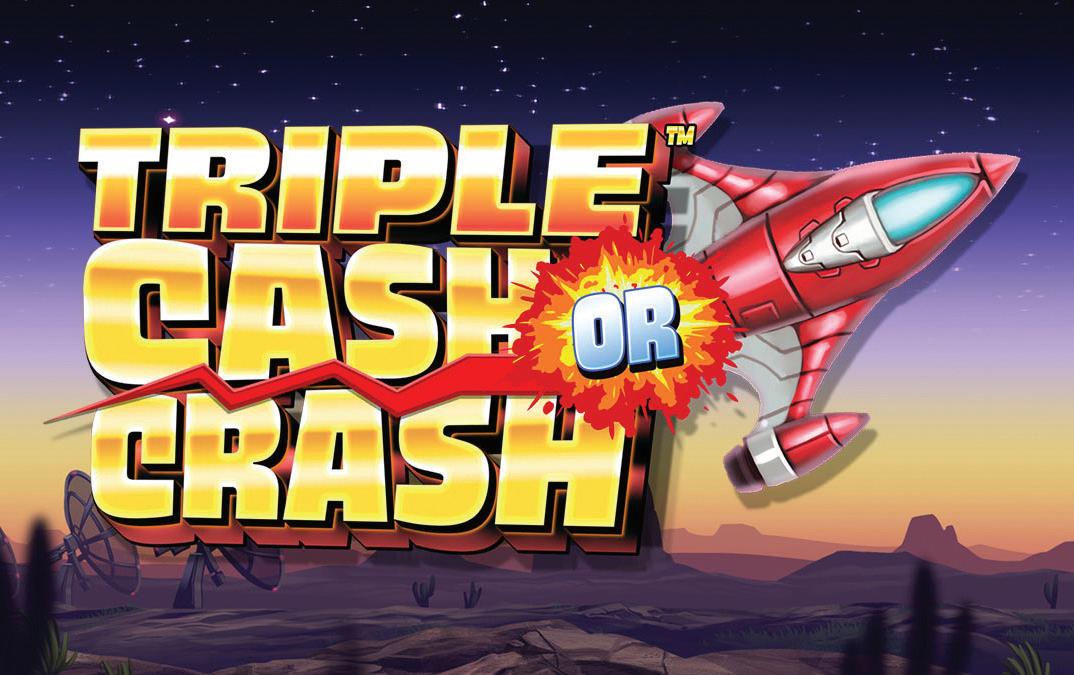
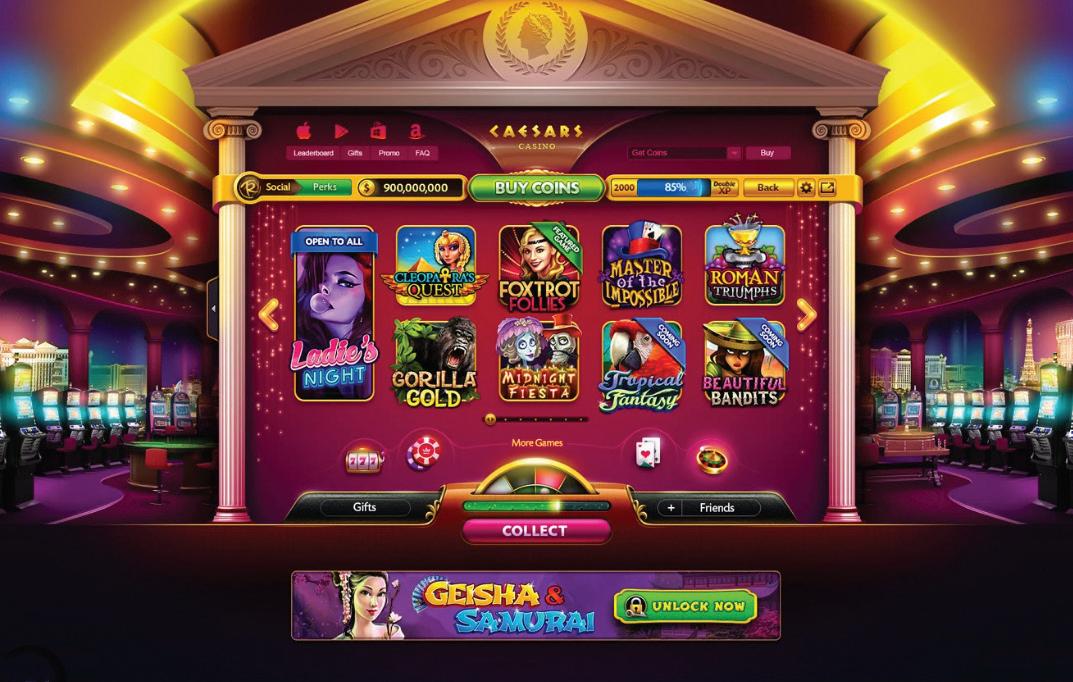
How we frame new products will determine how they’re received. The same mechanic can feel flat or compelling depending on its context.
Borrow a trick from public speaking. Grab attention with the frustration of a capped bet or a lifeless lobby. Show the need, the lack of agency or connection. Offer satisfaction and a participatory, social alternative. Help the reader visualize the future – dynamic feeds, creatorled games, collaborative jackpots. Finally, drive action: Invite them to test, join or experience it themselves.
Above all, don’t just say “community.” Show it in the chat, the squads, the co-op wins.
The problem: iGaming products look and feel static to a generation raised on dynamic, participatory platforms.
The solution: Build experiences around skill, interactivity, identity, fairness and cultural relevance.
The action: Re-orient product roadmaps around participatory UX, skill-driven mechanics and transparent systems. This isn’t optional. It’s the cost of staying in the game.
Picture an online casino lobby in 2026. Not rows of tiles but a living feed: trending games, creator-hosted challenges, live chats buzzing. A crash title framed as a rocket launch sits next to a co-op betting mission. Avatars signal identity, badges show status and players squad up in real time.
That vision isn’t futuristic. It’s already happening in esports platforms, mobile games and creator-led ecosystems. Casinos just need to catch up and adapt it for regulated entertainment.
Emerging demographics aren’t rejecting gaming. They’re shaping it, on Twitch, in Discord and across social feeds. If casinos want their attention, they need to evolve: away from passive reels, toward interactive, social and story-driven experiences.
Tomorrow’s players are already here, already engaged elsewhere. The real question isn’t whether they’ll join us. It’s whether we’ll adapt quickly enough to join them.
